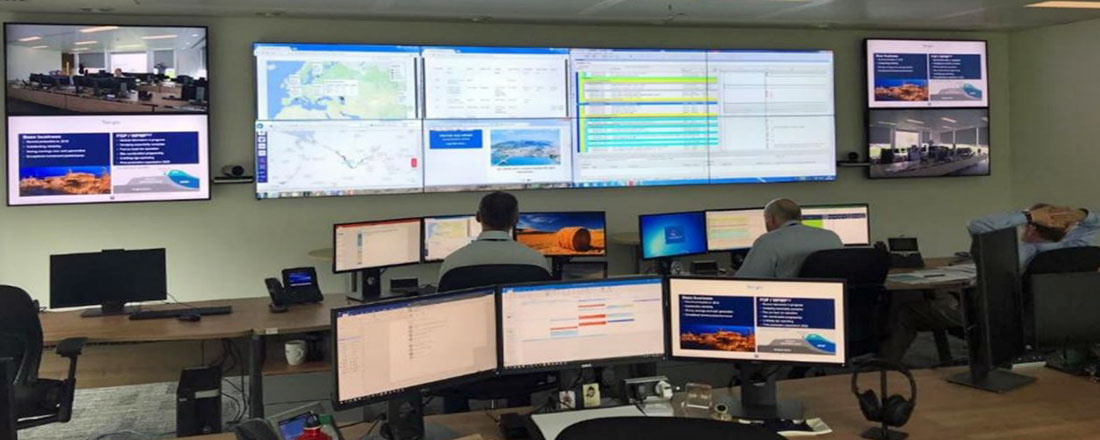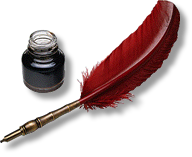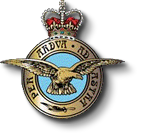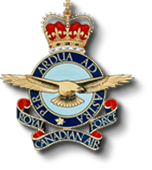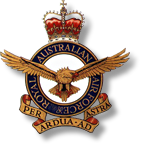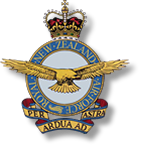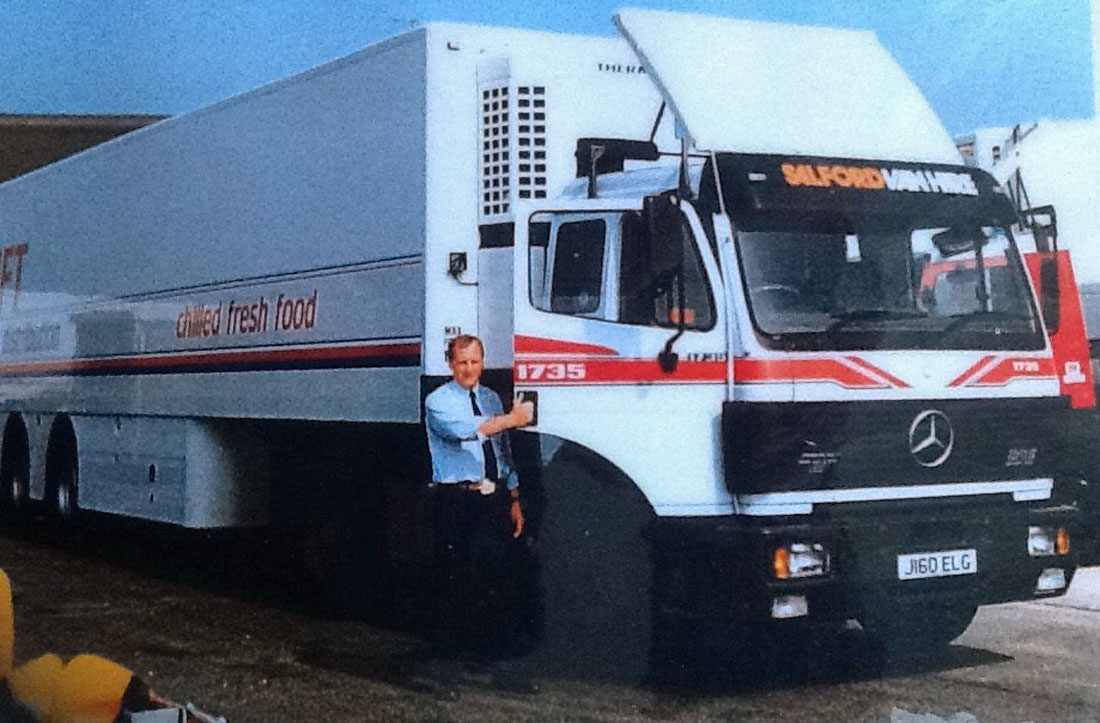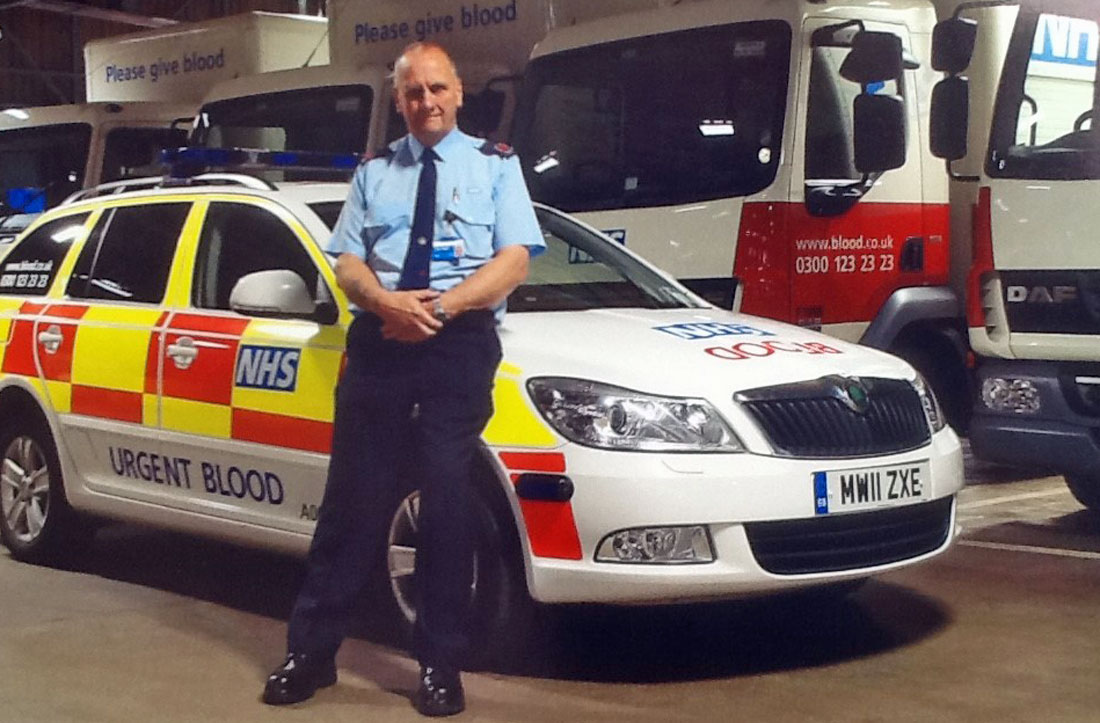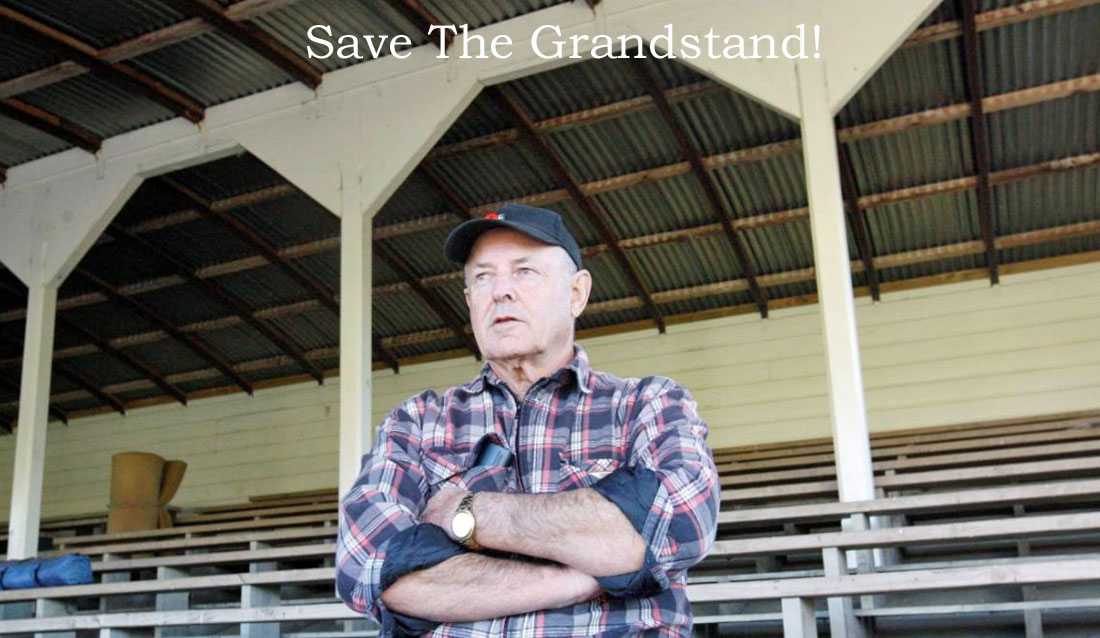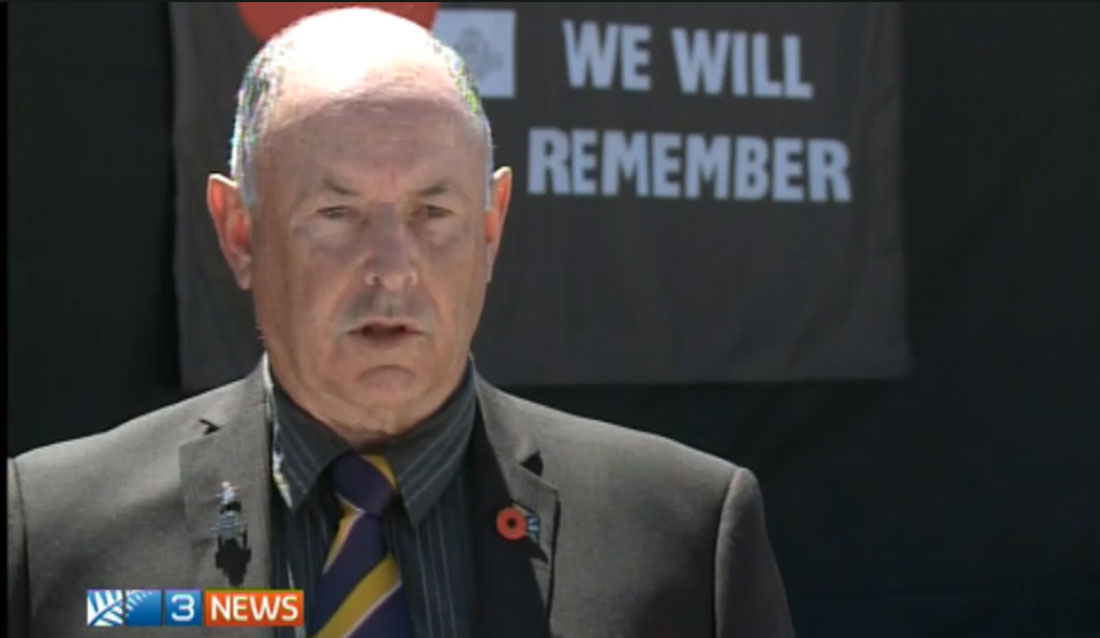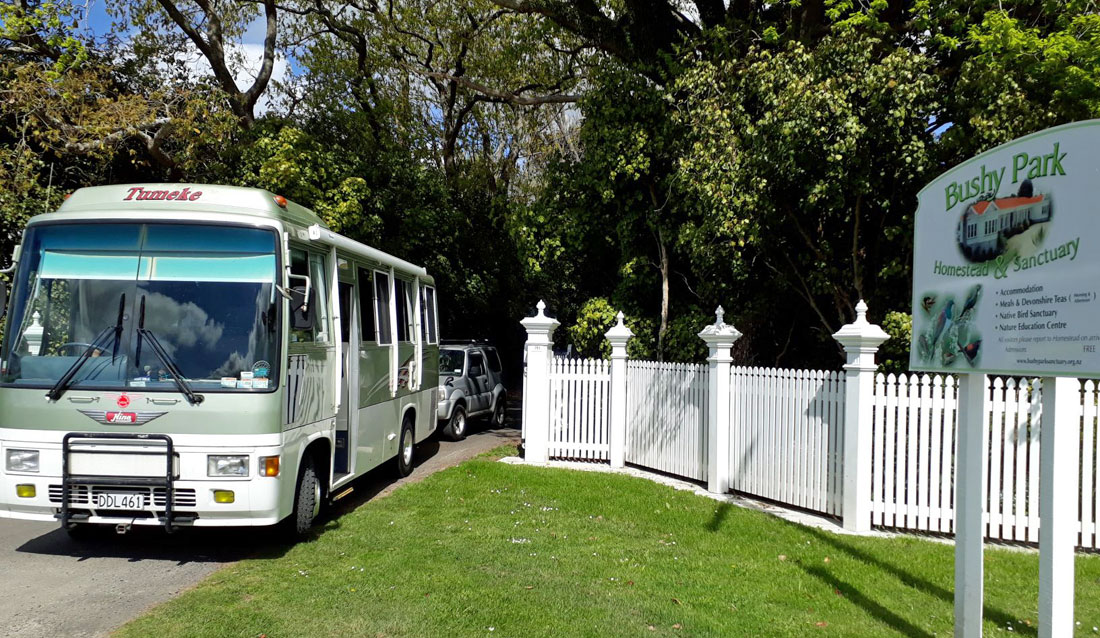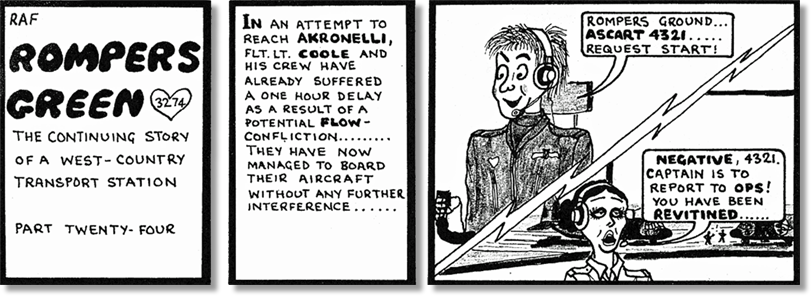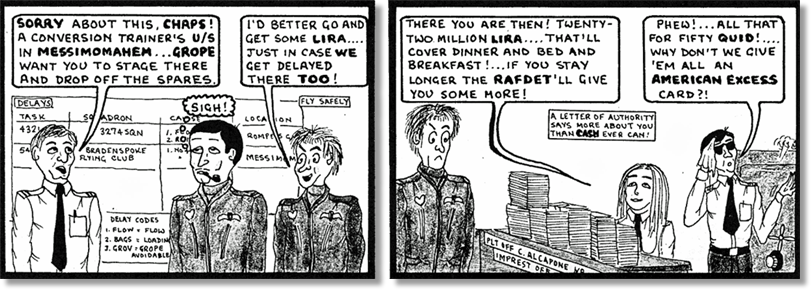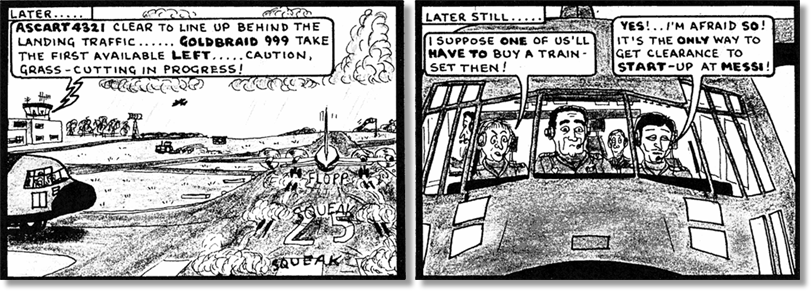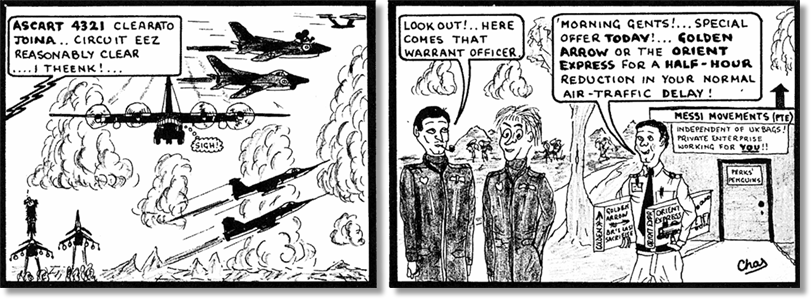
From: Andy Hulls, Crowthorne, Berks
Subject: Life after the Air Force
Hi all, its been a while since I put my head above the parapet in this forum, but thought that my experiences of life after the ‘blue machine’ may be of limited interest, moreso the benefits of military ethos, experience and training that enables us leavers to punch above our weight in the commercial sector.
I left at my 44 point and went into the varied sector of upstream oil and gas logistics. Having dipped my toes into freight forwarding and then major project logistics, 5 years ago, I joined Worley Parsons, an Engineering, Procurement, Construction and Management Company. Initially I was the Logistics Project Manager on the TANAP pipeline project, where I was responsible for the design and implementation of logistic support to construction of an 1800km (56”) gas pipeline across Turkey. This included:
• Development of logistic contracts, qualification and selection of 3PL contractors.
• Implementation of logistic operational plans, procedures, KPIs and risk analysis.
• Delivery of the Project 20 Ha pipe yard that supported all Project international line pipe.
• Operational integration of 14 logistic contractors including full range of assurance activity.
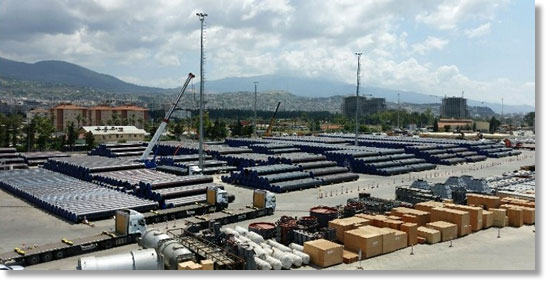
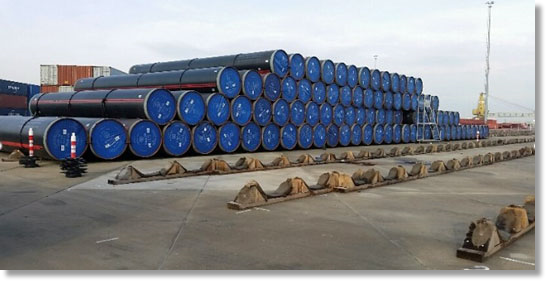
Luckily, I was able early on to coerce several of our former colleagues to come on board to support this, including the likes of Kev Jones, Dickie Allen and Chris Jackson to name but a few.
For the last 3 years, I have been a Logistics Manager on the Tengiz Chevron Oil Future Growth Project, a global mega project with a budget of USD $45.2Bn and Logistics CAPEX and OPEX of USD $5.2 Bn. This involved:
Logistics Execution planning including Project Management of 386 major module movements from fabrication in Korea, via transhipment bases to delivery in the Caspian Sea utilising the Russian Inland Waterway System.
Assurance management of development and completion of two major transhipment bases that included 2 Ocean Going and 4 Module Carrying Vessel berths, 62Ha of laydown, technical accommodation and warehousing.
Systems integration management across multiple operational delivery teams and contractors including development of a Project bespoke Logistics Management System.
Emergency Response and Business Continuity for all global Logistic Facilities.
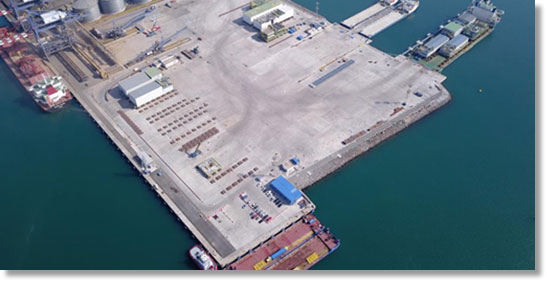
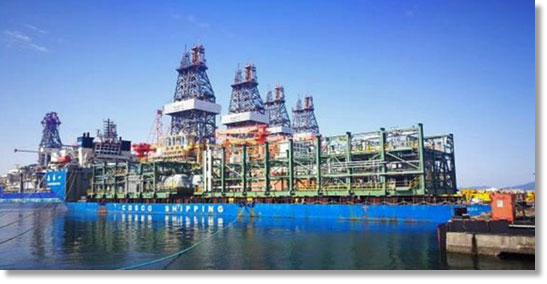
As I have found throughout my time since leaving the Service, the range of skills, qualities and capabilities gained during a military career are easily transferable into the commercial world and this is underlined by the large number of ex-military personnel working within this project on the logistics side, 60% ex RLC and RAF…
Following my time on FGP, I will be moving back to Worley to start up a Global Logistics Division and am always happy to discuss the sector and any potential openings.
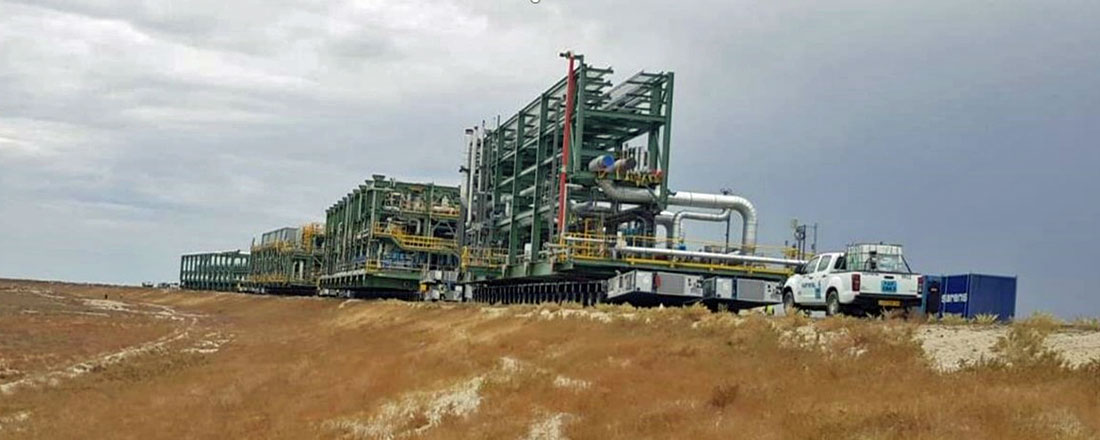
From: Keri (Taff) Eynon, Thatcham, Berks
Subject: From RAF Blue to mainly Clerical Black
On leaving the RAF (I served from 6th January 1966 to 8th August 1988), I commenced training for the United Reformed Church MInistry in September 1988. The course took 4 years and on completion I began my Ministry by being Ordained and Inducted to a pastorate in Newton Abbot and Kingsteignton in Devon in October 1992.
It was here that I was approached by members of the Operation Market Garden Association (Arnhem) to become their Chaplain as I was a member of the Royal British Legion (RBL), it fitted in perfectly and I started in October 1992 before being asked by the Kingsteignton Branch of the RBL to become its Chaplain as the local vicar no longer wanted to continue in that role. This I gladly took on conducting regular Remembrance Sunday Services as well as other events in the Legion.
After 5 years in Devon, I felt that I needed to move on to explore further avenues in worship with the result being that I moved to a pastorate at Newbury and Hungerford in September 1997, also transferring my RBL membership to Newbury. It was on the retirement of the then Anglican RBL Chaplain in 2004 that I was again asked to become Newbury Branch Chaplain which I duly, with the backing of the Church Congregation, did and to this day I still continue to do.
My actual church ministry lasted from September 1997 to my retirement in August 2013. Without the responsibility of having an actual church building to worry about, I was able to give more time to the Legion which resulted in me being Chairman of the Branch from 2013 to 2018 and am at present Vice President of the Branch. Being involved with the Legion has lead to a number of interesting things; the photo of me being presented to Princess Anne is just one such event.
The memorials at Greenham Common, initially just one, was erected by the USAF in memory of US paratroopers killed on a training flight in 1944. When Greenham closed as a base, Newbury RBL promised the USAF that they would continue to hold the memorial service on the anniversary and so it continues at 12 noon on the 12th December every year.
In 2011, it was discovered that following the paratroopers' deaths, a few days later two American bomber crews were killed when their planes crashed returning from a raid. This discovery lead to the commissioning of two extra memorials to add to the original one. It was in September 2012 that Princess Anne carried out the dedication of the memorials in their new site. I was privileged to arrange the actual service for this.
Among other interesting things I have been involved in as a Minister, two events stand out as I did marriage blessings for the following two couples: Thierry Henry (renowned footballer) & Claire 5th July 2003, then Cheryl Cole (singer/entertainer) & Ashley 15th July 2006.
Even though I have retired, I still get asked to preach at various churches in the area but, apart from the Legion, my main work is conducting funerals.
So, between UKMAMS, the URC, the RBL and ministry in general, I feel I have been fortunate in my life and look forward to continuing as long as possible serving the community as much as I can.
Tony, please also let others know through the newsletter that I will be more than happy to hear from anyone and if they should be in the area to let me know and hopefully meet up for a pint and a chat.
Again, thanks for all for all the excellent and hard work you do on behalf of us all in the association.
Regards, Keri
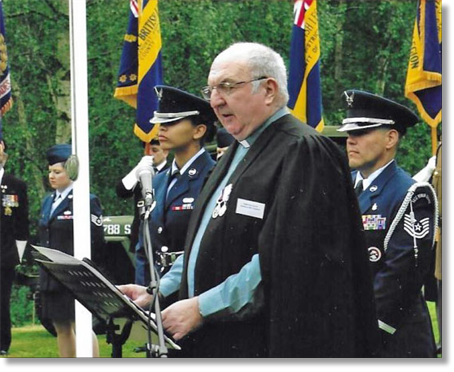
Greenham Common USAF Memorial Dedication Service
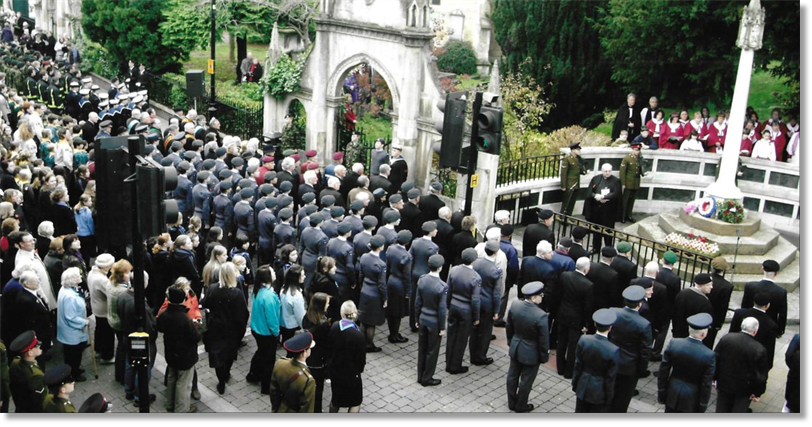
I'm conducting the service at The Memorial in Newbury on Remembrance Sunday
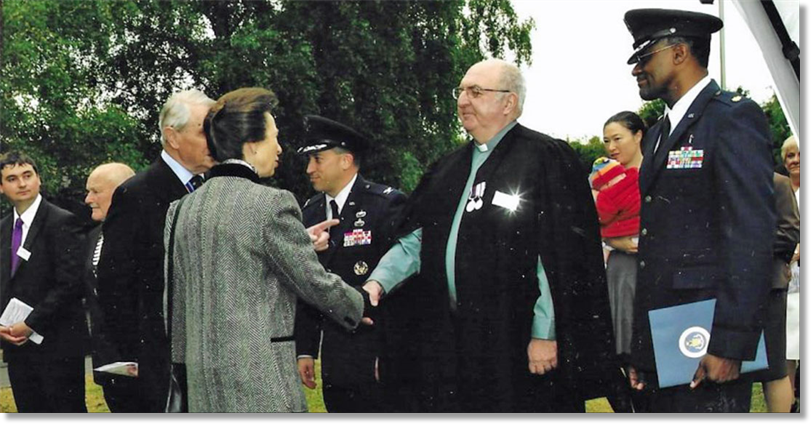
Being presented to Princess Anne following the dedication of the new USAF Memorial at Greenham Common
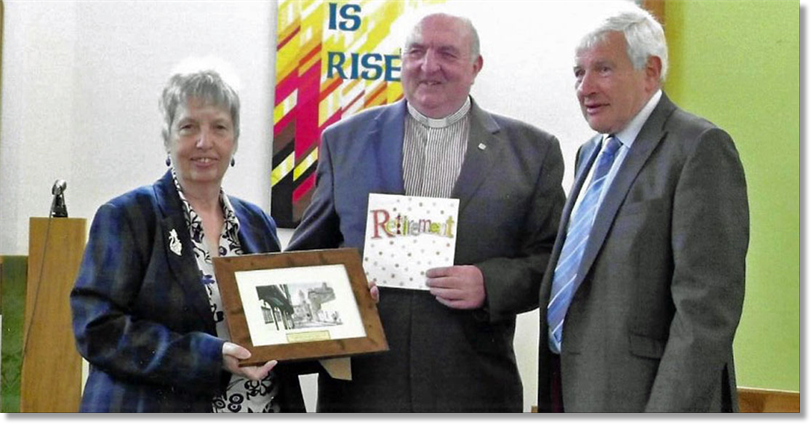
My wife, Mary, and myself at my retirement service at Newbury URC in 2013




The UK Royal Air Force (RAF) recieved its first submarine-hunting Boeing P-8A Poseidon aircraft. "The new submarine-hunting Poseidon Maritime Patrol Aircraft arrived in the UK at Kinloss in Scotland. The P-8A Poseidon ZP801 named 'Pride of Moray' is the first of nine aircraft that the RAF will introduce to patrol the waters around the UK," the Air Force said in a statement.
The aircraft is the first of a new £3 billion programme, including the purchase of nine Poseidon jets. All nine UK Poseidons will be delivered to the RAF by the end of 2021 and achieve full operational capability from RAF Lossiemouth in 2024. The aircraft will be flown initially by 120 Squadron, the leading anti-submarine warfare squadron in World War II, with 201 Squadron joining the programme in due course.
The Poseidon will temporarily operate from Kinloss until October 2020 while £75 million of planned runway and taxiway resurfacing works is completed at Lossiemouth by the Defence Infrastructure Organisation.
The aircraft will protect the UK’s continuous at-sea nuclear deterrent and be central to NATO missions across the North Atlantic, co-operating closely with the US and Norwegian Poseidon fleets, the RAF said. The Poseidon is designed to carry out extended surveillance missions at high and low altitudes. The aircraft is equipped with sensors which use high-resolution area mapping to find both submarines and surface vessels.
Each aircraft carries sonobuoys which are dropped from the aircraft into the sea to search for enemy submarines, surveying the battlespace under the sea and relaying data back to the aircraft. Poseidon will also be armed with Harpoon anti-surface ship missiles and Mk 54 torpedoes capable of attacking both surface and sub-surface targets.
defenseworld

Subject: Musings
Hi Tony,
While reminiscing about my wonderful time on UKMAMS in the late 60s. I thought of the two or three visits to Bardufoss in Norway. I decided to check out what Wikipedia had to say about it. I obviously knew it was a German airfield in WWII (verified by the many German steel helmets we found kicking around the hills) but was shocked to see that it was also a German concentration camp.
It only held about 800 slave laborers. I remember how terribly cold it was in the winter and can’t imagine how it must have been for those people with inadequate clothing and accommodations. Did anyone else know about it’s tragic past?
As always thanks for all your hard work in producing the news letter. I look forward to it every month.
Roger
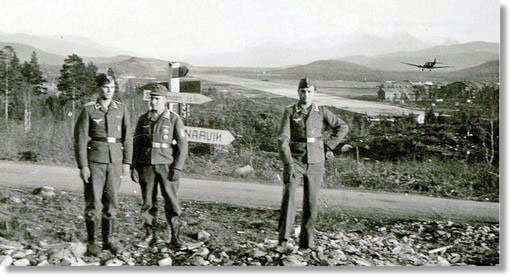

Subject: Life after the Air Force
Hi Tony,
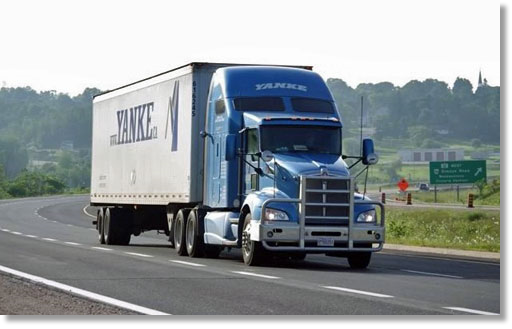
I had three jobs after my 30 years. After moving back home to Winnipeg, I worked for the Corps of Commissionaires at the Liquor Commission for 5 years.
After this job I worked for Liberty Tax for a year and after the tax year ended, I was laid off.
Then one day I was looking through the ads at a local EIEIO office and noticed an advert for Semi Trailer training with the promise of a job after training. Always wanted to drive the big rigs so back to school I went.
It was a pretty intense course with 6 weeks in the classroom and then 2 months of practical driving. My job came through with Reimers for whom I worked 2 years and then another 2 years with Yanke. Loved the trucking but being away from home all the time and paying taxes for those who refused to work struck me as just too much. I retired totally after that and my wife, Susan, and I are enjoying the retired life in Manitoba.

Subject: Life after the Air Force
I always wanted a Bed and Breakfast so I did that for a couple of years and then changed my path to become a painter and a jack of all trades which I still do today.
Cheers,
Moe
From: Stephen Bird, Chester, Cheshire
Subject: Life after the Air Force
When I hung up my blue suit in 2003, I ended up in a position I never would have dreamed of back then... In July 2002 I decided to put in 12 months notice to leave the RAF, I had secured my pension and held the rank of Sgt, at that time I was the Office Manager of the Air Force Careers Office (AFCO) Liverpool, one of the busiest AFCO's in the UK. Those who remember me will also remember I certainly was not an admin type, but by default I ended up in an admin role within AFCO, I would always prefer a chain in my hand, rather than a pen.
Like all movers I set my sight on a career in Logistics/Air Cargo empire, I was ideally located in the North West just 15 mins drive to either Manchester/Liverpool airports. I attended a number of job fairs at both locations, and quickly realised that most Airlines would welcome any ex mover with open arms, I also discovered I could earn less money for more hours work and have more hassle.
Instead I looked at Road Logistics and managed pretty quickly to obtain a position of a shift manager for the TDG group just 5 mins from my home, mainly dealing with Haz Chem. This position was secured in March 2003 with a start date in July 2003 the month I was leaving the RAF. I sat back in my armchair and managed to get all the jobs around the house done whilst on my resettlement leave. Then came the bombshell; two days before my conversion into a Civvy I received a letter from TDG advising me due to restructuring of the operation there was no longer a position for me!
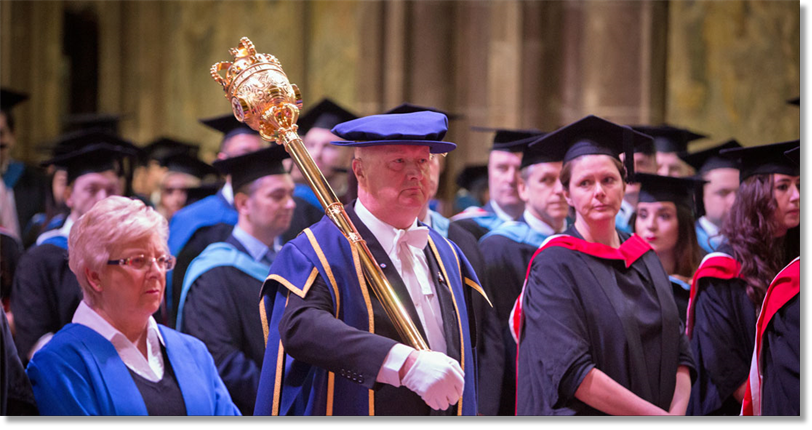
"Right, what now?" I said. I was not going to sit on my backside so I registered with an Job Agency and for the next five months did a number of driving jobs whilst looking for a more permanent position somewhere.
This is when my present role came to the fore, I saw a job advertised in November 2003 for a University Porter with the University of Chester, the advert stated that it would suit ex-forces staff.
I applied and was successful, my start date was January 2004 and within hours of starting the position I could not see myself doing anything else.
My Manager, the then Head Porter, whose name was Roger Blackburn (since deceased) was ex-Army, and a number of the other Porters were also ex forces guys. Although the pay was not great the overall package was good by today's standards in Civvy Street.
The position for the Head Porter role became available in November 2004 so I thought "Why not? Let's apply!" I was unsure if I would be successful due to a number of my co-workers having worked for the institution in excess of 17 years.
I was successful, and 17 years later I still hold the role of Head Porter. I have a team of 24 Porters under me and I report to an Operations Manager.
I don't think I need to go into too much detail about my role, all of you reading this newsletter will have at some time or the other been either Orderly Sergeant or Guard Commander. That's what this job is, minus any weapons. That is why within days of starting the position I knew it was the role for me. I suppose I never really left the forces.
I also hold the title of the Esquire Bedell within the University. This entails myself being the official Mace Bearer for the University.
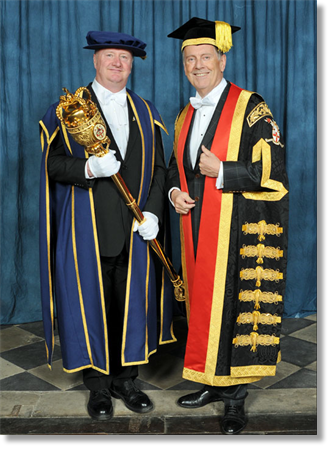
Over the years I have escorted in many dignitaries who were going to be in receipt of degrees, ranging from HRH Prince Charles, right across the spectrum to the Manager of Chester City Football Club.
To conclude, as I approach my 60th Birthday in April of this year, I am still happy to parade in a daft hat!
Regards:
Stephen Bird
Head Porter, University of Chester

Subject: Life after the Air Force
Hi Tony,
I was demobbed from my last tour at JSATC (Joint Service Air Trooping Centre) RAF Hendon on the 8th November 1979 age just 30. I was not given the opportunity to sign on again which, in hindsight, was the best thing that could have happened.
After applying for several post with air freight companies I was accepted into the London Fire Brigade on the 5th November 1979 (yes, I know, what a date to join the LFB, the UK celebrating Guy Fawkes night with the whole country seemingly burning up with bonfires).
My time in the LFB is a story in of itself, maybe a book when I can no longer play golf. Anyway, to cut a very long story short, I completed 22.5 years in the brigade and with my RAF pension transferred to LFB I was able to retire early in 2002.
I have been married to Sue for the last 40+ years and we have two grown sons both married with two lovely grandchildren, one of each.
Well, that’s about it. We have lived on the Isle of Wight for the past 11 years and I still play golf. I even entered the realm of local government and became a parish councillor and was chairman of the council for three years.
David Hardy
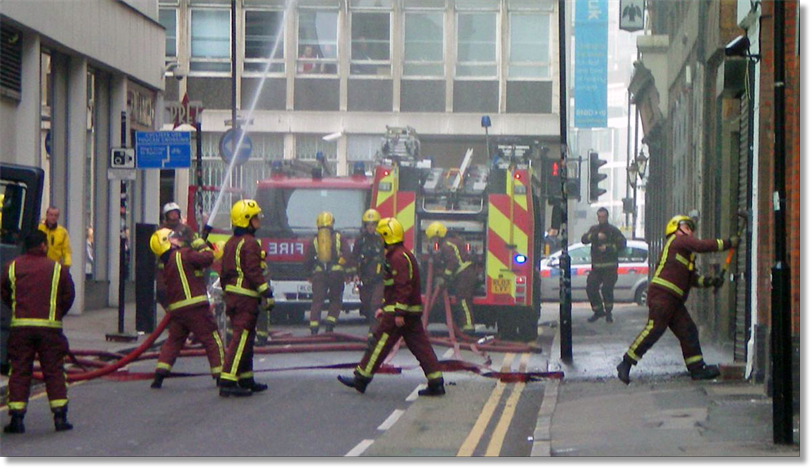
From: Gerry Davis, Bedminster, Somerset
Subject: Life after the Air Force
I started off as a Boy Entrant, 29th Entry as a Supplier II at Cosford in October 1956. 11 years of my 12-year adult engagement was served on air movements, as a Supplier II / E.Q.Am.
I liked the air movements work and had decided that this was the way for me to seek a similar career in the fledgling civil aviation on completion of my service time. I had applied to sign on but was told that there were no vacancies due to the defence cuts. Perhaps I had left it too late to do this. That was that a shock to the system! I am of the mind that our paths through life are chosen for us so, I decided to give it a go and overcome the insurmountable challenges.
My last 6 months at RAF Lyneham was served in the Route Hotel where both I and a grounded MAQM dished out the odd keys to the rooms. I took this time up writing and visiting various airports to test the weather in job seeking. Even spending a fortnight with Lloyd International at Stansted. I noted that several airlines were in the process or going bust at this time and this made me change my mind about joining one of them.
I had attended two interviews in Bristol, one at Bristol Airport as a member of the Duty Crew and one at Filton with Rolls Royce aviation as a Loadmaster/Passenger agent on their Argosy. This was 1971 and Rolls Royce had just gone bust, although I had accepted the RR job offer, they had put a hold on recruitment until the situation became clearer. So, I took the job offer at Bristol Airport.
I made use of the 3 months’ time off, one month’s annual, one month’s terminal and one months attached to the new employer to integrate into my new environment and hunt for somewhere to live. This was a time of earth-shattering experiences, very stressful and full of obstacles to overcome.
I Started work at Bristol Airport on the 1st June 1971, at that time the airport was owned by the City of Bristol, I became a corporation employee. Had I made the right decision? Would I fit in? Is this the right choice for a career? Well, it’s too late now buddy, I said to myself (I bet you talk to yourself too!).
I was employed as a member of the Duty Crew, a fireman and airfield labourer. Amongst some of the duties was baggage and cargo handling and they even had one of those large forklifts.
During my interview by the then Airport Director, he told me that he was shortly going to introduce the post of “Airport Duty Officer.” He was awaiting the approval of the Airport Committee before going ahead with the advertising. He suggested that I would make a suitable candidate but to keep my mouth shut about it. I was to be paid weekly and on getting my first pay slip, I was astounded to read that my employee number was the same as the last three of my RAF number, which was 824. Wow! I took this to be a good sign.
It was a further nine months before the interviews started and I got one of the jobs. There were 5 of us; an ex RAF Apprentice, Sqn/ Ldr Harry Pollard (My old Boss) and two other ex RAF bods, one of whom was a Chinese linguist the other an ex Armourer, who was also previously employed on the Duty Crew, like me.
I must admit that those first nine months were somewhat of a challenge. I was thrust amongst several family members who had populated the whole workforce for many years without change; I soon learnt that it was unwise to proffer suggestions for improvements or changing working practices. I really felt ostracised and it was like being a foreigner amongst a collection of 18th century West Country farmers.
Setting up a new department in an organisation that had a mind-set akin to the Stone Age was extremely difficult and led to much animosity, distrust and bloody-mindedness against us. These were extremely difficult times for me and my colleagues. The biggest problem we had to face was the “Union”. For those of you not in the know, this is a system whereby if you ask a member of the workforce to do a specific task and they don’t like it, then it’s classed as either bullying or “Not my job mate.”
Things did not improve when we were kitted out with our new tailored uniforms; this then became a source of amusement and continual cat calling and mutterings of “Anyone call for a TAXI” or “Your chauffeur is here mate.” This went on for years.
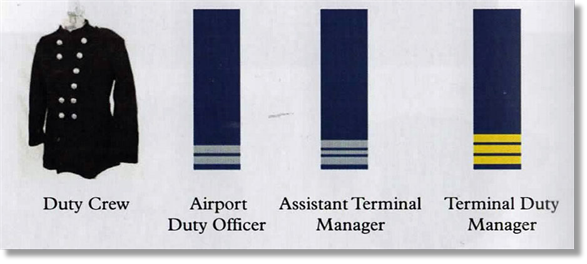
During my 27 years to the day (1st June 1971 to 1st June 1998) I witnessed many changes to my working conditions and to the airport's rise in passenger throughput from 100,000 to 1 million. (Nowadays I understand that it’s more like 12 million.)

Subject: After the RAF
When I left the RAF after 39 years I was fortunate to go straight into the local Council as the Mayor's Officer. A sometimes difficult task dealing with Civil Servants but I did manage to bring some military humour to the job.
As the old saying goes " You can take the man out of the military but you cant take the military of the man".
Now it's chief gardener on the allotment and a volunteer presenter on Hospital Radio in Bedford.
Barry
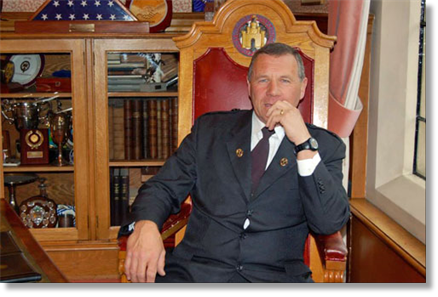

Subject: Life after the Air Force
On leaving, after 36 years, got a job working for the local County Court as a Bailiff! It was another pension to keep me going in retirement...
David
Subject: Life after the Air Force
Thanks Tony,
What path did I take?
I went to the dogs and to the beach.
I did not/am not/will not work again
All the best
Luanne
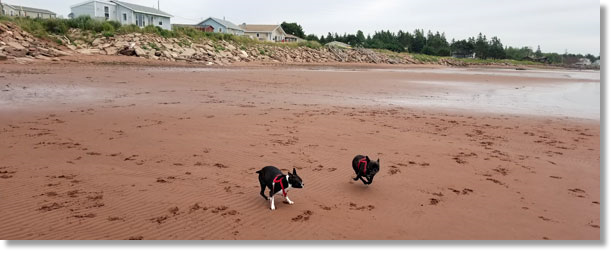


Subject: Life after the Air Force
Thanks Tony,
Good to hear from you. After 5 good years in the RAF - 1959 to 1964 - I went into the stainless steel industry, starting as a desk salesman and eventually after many years as a company director travelling the world.
Alas, those days are long since gone now but I'll always remember the comradeship in the RAF air movements and the times in Nicosa, Cyprus and El Adem, Libya.
Regards
Norman

Subject: Life after the Air Force
Hi Tony,
I left, reluctantly, after a fantastic 43 years service thinking that's it, now for retirement. How wrong I was!
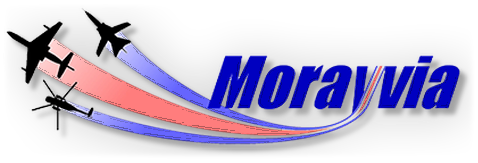
Along with four others, we set out saving a Nimrod for Moray in April 2011 and set up "Morayvia" at Kinloss in an old Infant's school. We purchased Nimrod XV244 and soon after the front end of Nimrod XV240.
Then we decided to try and save a Sea King, an iconic helicopter in this area and around the UK coast. Again we were successful and bought XZ592. It is still quite a rarity in the aviation museum world, and this was brought up from Gosport in Hampshire.
Over the years since opening to the public in 2016, we've added more aircraft and cockpits, all of which are open to our growing number of visitors including an indoor planetarium, a shop and a growing collection of books and aviation artefacts.
In addition to the Nimrod and Sea King other complete aircraft are a Dragonfly, a Skeeter, two Wessex, an Antonov AN2 and a Jaguar plus the fuselages of a Merlin and Herald and cockpits of a Valiant, Vulcan, Buccaneer, Jet Provost, Vampire T11, Lightning, Meteor NF11, Hunter, Canberra and a Tornado which was in the simulator at Lossiemouth. We are adding a Vampire and a Whirlwind during this year and anything else we can lay our hands on.
Last year we were presented with the Queen's Award for Voluntary Service, four stars by Visit Scotland and also voted the best Aviation Museum 2019 by the Aviation Heritage Group, all of which reflects the extremely hard work and effort put in by our excellent volunteers.
So, that's what I've been up to since "retiring", I still fly when I can thanks to Mr Andrew Whitehouse who owns the last airworthy Whirlwind, now joined by a Wessex and, very soon, the first of his Sea Kings, and being a hands-on member of the Morayvia Board. https://www.morayvia.org.uk/
Kind regards
Bob

Subject: Life after the Air Force
Great topic Tony and I think in many cases, we all learnt such a wide range of skills and gained tons of confidence during our time wearing Blue that nothing seemed impossible.
I left the service from the RAFMovU in Washington DC. I had met a chap in a bar (MAMS training to be in the right place etc) who offered me a job in San Francisco.
I spent 6 years managing a Flight Ops company and then joined Cathay Pacific as their man in SFO. Moved to head office in Hong Kong and did all sorts of great jobs, including running Kai Tak for them and then running HATS, the ground handling company there, before doing the same at the new HKIA Airport. Then posted to South Africa to run the CX operation there
Mandatory retirement age required me to leave after 18 years so moved back to U.K. to run Virgin Atlantic’s systemwide airport operation for 4 years. Missed Asia, so was MD of Macau Airport handling and engineering before joining the Emirates Group (dnata) in Dubai and Philippines. Oman Air next as Head of Airport Ops systemwide. I then retired!
After 6 weeks I was working for IATA as a lecturer and Seabury as consultant . In 2015 I moved to Luanda, Angola as part of an Emirates sponsored Board of Directors to run TAAG, the national airline. I ran the Ground Ops/Security/Catering side of the business.
And all these skills I learnt from Kilo Team, UKMAMS! Well, most of the more dodgy ones anyway! I still do a bit of work from time to time but seriously, the bedrock of skill, leadership and how to treat people came from my time in blue.
Thank you to all those who steered me in the right direction all those years ago and kept me on the straight-ish and narrow!
Cheers, Don

Subject: Life after the Air Force
Tony,
Have to drop you a line, none more so than to inspire those looking at leaving or thinking of leaving, as there is life after wearing blue. I did my 22 years and made a conscious decision that this was enough time spent in a blue suit. So what next, what skills did I have, what extra skills had I learned, and what skills had I not realised I had acquired? Being a mover is quite unique, we are exposed to everything and everyone in uniform and our skill sets are often untapped. Our biggest asset is dealing with anything that is thrown at us, as we have that honed military "mover" mindset.
I left the RAF on Friday, was unemployed for the weekend and started my new job as a logistics coordinator with the International Committee of the Red Cross (ICRC) on the Monday. I did three missions over a three-year period, working in Macedonia, Kosovo, Israel, Palestine and Angola. A baptism of fire as ICRC works in areas of conflict and I had my fair share of hostile incidents to deal with. But my good old mover mentality and military humour kept me sane. An example of thinking on your feet, when being asked to negotiate the release of 2 police hostages taken by armed freedom fighters was a hair raising situation. My qualifications to do this (I was told) was that I was ex-military and used to this type of situation. A successful release was secured, drawing on my, guile, persuasion and humanity skills (no different than dealing with a Brize Norton VC10 captain, who thought he was a NASA astronaut!).
That incident changed my personal work profile and I set off down another path and through another door. More specialised field work and security advice in hostile situations, so many incidents, so many stories and a bravery award followed but eventually moving on to work for the British Government, with a helping tap on the shoulder. Going on to work in Afghanistan, Pakistan, Iraq, Lebanon, Sudan, and Russia. Not much to say on this nine- year stint, otherwise I'll be locked up for treason LOL. May write a book one day but I did sleep with a loaded pistol under my pillow from time to time (just like being in Liverpool!).
Another door loomed and the decision was made to walk through it. Stepping into the fast- paced, high-paid and no-room-for-errors world of advising a Fortune 500 commercial IT company, with 400,000 employees working in 197 countries. No VC10 vents here, but still VC10 captain wannerbe astronauts to deal with! I investigated acts of corporate and industrial espionage being acted on staff, or the company, and looking for another "Edward Snowden", high stakes, with high prices but keeps me busy for a few more years yet. Another book looming I think.
I joined the RAF as a very young 17-year old, and if someone would have told me where my life would go and where I would end up, I would have said they were on drugs. My time as a mover gave me everything and more that I needed for the world I was to join on leaving the RAF; I/we just don't realise what we have in the locker until it's called upon. And, I am eternally grateful to all the "old bods" that gave me valued knowledge, advice and guidance over the years. So, look for those new doors, walk through them with confidence, as we are all talented "movers" and there is life after blue... so, go and get it!
Best Regards
Graham "Scouse" Leman

Subject: What I did after leaving the RAF
Hi Tony,
On leaving the RAF I was lucky enough to become the Station Warden at Brize Norton. I continued in that job for about 18 months until Shirley and I decided to sell up in the UK and move to Spain.
The main reason for the move was to assist in setting up a radio station with which I was instrumental in training the presenters. Having been with that station for 18 months, I was asked to join TKO Gold FM where I stayed for 5 years. It was a fantastic place to work with some good people.
I am now a confirmed pensioner after presenting on a couple of other stations, but it was a great experience.
Cheers,
Bruce
Subject: Life after the Air Force
After I got out I immediately went on the dole and hated every second of it, but luckily I saw an ad in a newspaper (Daily Express maybe?) for the Sultan of Oman's Air Force for movers, so I applied with Airworks down in Bournemouth and got accepted without really having a clue what I was letting myself in for. Anyway, I must have liked it there because I ended up staying for 8 years and eventually ran the Air Cargo section at Seeb military airport. Oh, and the pay was very good for the late-70's!
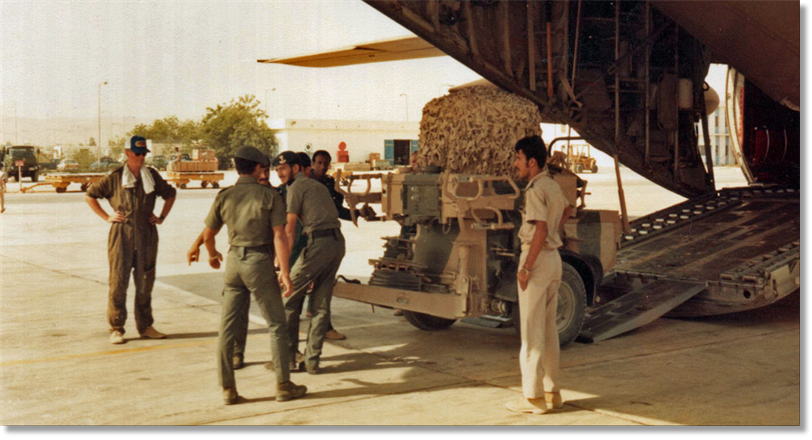
Sending some Rapier units off to (probably) Masirah as there was a squadron there. That nothingness in the background was the old air cargo shed (no air conditioning). Good SNCO, stand back and let the troops get on with it!
I got out and left SOAF when it became less fun (and less like the Wild West) and came back to the UK. Next I got a job at the American Embassy on the local security staff and that is where I met and married my wife who was there with the US Navy, and eventually we ended up here in the States.
We've had enough of endless Colorado winters and will be moving a bit further east in April to be closer to our son in Kentucky.
Regards
Andy

Subject: Life after the Air Force
Tony,
Pretty easy – retired, travel, volunteer work with RSL, catch-up with family, especially travel to foreign lands.
Cheers
Mick
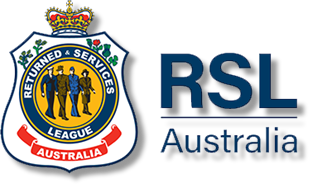

Subject: Life after the Air Force
Hi Tony,
Leaving the force came earlier than expected as I have told you previously. No idea what I was going to do but after about 6 weeks of being unemployed I replied to an advert in the local paper and they were looking for a shipping manager. The interview went really well and I was asked if I could start Monday. Absolutely was my response!
It was only a small shoe design company that made mostly tennis shoes for the German tennis players plus kids trainers and wellies. Got shown around and met the other 7 members of the team. The secretary was gorgeous but I was given a quick word in my shell like... look but don’t touch!
The MD’s wife was the accountant and she helped me no end. After two weeks in the job, boss says I need you in Pusan, South Korea to sort out the shipping from the factory as it’s all gone boobies up. I asked when do you want me to go? Tonight on the 22.45 flight! Wife not too happy with such short notice but it worked out. Got the problem sorted, phoned the boss and he said while I was in the neighbourhood get a flight over to the other factories in Taipei, Taiwan. Made a few friends there and had a good time. They were very interested in my time with the RAF and what I did. They showed me a lot of respect and I returned that respect. I learnt an awful lot about how trainers and other shoes were made. I also learned about ocean shipping, using both conference and non-conference steamship lines.
Three weeks later the boss says he is off to the shoe show in Lake Garda, Italy, it was to be just him and the designer. His wife came into my office and asked why the secretary was late in. I said that I got a phone call at 11pm saying she would be in Italy with the boss. Wife was not happy! "Graham, I need a flight to Italy ASAP!"
Things in the office were very icy for a few weeks. It eventually ended in divorce but a week later the boss died of a heart attack! The company folded and that was that followed by two years out of work. I enjoyed the job and I was very sad it ended.
After my two years of being on the scrap heap it all turned around starting with Air Bridge Carriers later Hunting Cargo Airlines then to Air Foyle and then Antonov Design Bureau. It all ended with a nasty accident with Serviceair!
Many adventures and 80 countries later, I think I can say it was a decent way to earn a crust.
Graham Allen
p.s. Just waiting for my daughter to return from the Coronavirus stricken cruise ship the Diamond Princess where she has been quarantined in Japan. Think it’s Brize Norton for her arrival... a new adventure awaits.
From: Michael V. O'Brien, Corinda, QLD
Subject: Life after the Air Force
Three years in PNG 2001- mid-2003, as steel fabrication company Hornibrook-NGI‘s Logistics Mgr & then to early 2004, Mgr Monier Products (preformed plastic water tanks and ‘banana boats’, and with my own quarry for road construction and that volatile powdery black stuff to play with), when our parent company sold us to our major competitor, who declared to me that he was most happy to get us for about half of what he was expecting to pay!
In late 2004, thru’ the Old Boys’ word-of-mouth system, I was employed as a remote/austere location operational transport and logistics consultant for the preparation and deployment/installation of UN member nations’ contingent troops and police to, mostly, deepest darkest, UN Peacekeeping Missions. This rôle often encompassed deploying to start-up missions as relief-manning in situations where UNHQ NY had not been able to reposition/recruit sufficient bodies to start keeping some peace, and often I despatched troops from contingent nations who I then received into their destination and managed their establishment.
My Air Force Movements and Logistics background facilitated my dealings as most military and police organisations are formed along very similar lines to those with which we have been involved, and thus enabled a degree of “assumed knowledge and acceptance”.
The preparation phase comprised advising on the peacekeeping mission level and “what to expect” upon arrival, and how best to prepare the contingent-owned equipment to withstand the rigours of transport, by any mode, from national base to the mssion area.
For example, anything moving by sea/road into Africa, thru’ Mombassa or Dar-es-Salaam will certainly not arrive at destination further inland with any external accessories (mirrors, lights, extinguishers, mounted weapon-brackets, unlocked-wheels) still affixed, which unfortunately was proven many times, to the detriment of the contingent’s mission capability to commence their duties.
All modes of transport were contracted by the UN to achieve deployment, and often the adage ‘lowest bidder’ was quite apparent; it was not uncommon for completely different assets to arrive to effect the uplift than had been initially advised by UNHQ NY. In such circumstances, the contingent deployment would be delayed, causing a follow-on deterioration of capability, and general “administrative difficulties”.
The consultancy empowered the UN to deploy peacekeeping resources within tight time frames, to ensure that the demands of peacekeeping missions were coordinated and responsive to UN needs. I was often deployed to UN peacekeeping contributor countries to co-ordinate and act as the UN’s “eyes and ears” in order to deploy such personnel and their equipment from home country to mission.
This movements related work encompassed national contingents and activities from/within Bangladesh, Burundi, Chad, Congo-Kinshasa/DRC, Cyprus, Djibouti, Egypt, Ethiopia, Haiti, India, Indonesia, Jordan, Lebanon, Malawi, Mali, Mongolia, Namibia, Nepal, Nigeria, Pakistan, Qatar, Rwanda, Senegal, Sri Lanka, Sudan, Sudan-Darfur, Tanzania, Uganda and Ukraine.
The role required a high level of administrative, operational and tactical expertise to coordinate the movement of stores, weapons, ammunition, and personnel, and responsibility of briefing UN and contributor on the uplift phase, coordination and all aspects of the deployments, for which my military service provided a convenient skill-set.
The lessons of preparation and attention to detail which were impressed me a young mover stood the test of time, to be sure!
Reagent Tank, manufactured by Hornibrook-NGI, 2003 for NapaNapa Oil Refinery, Port Moresby, PNG
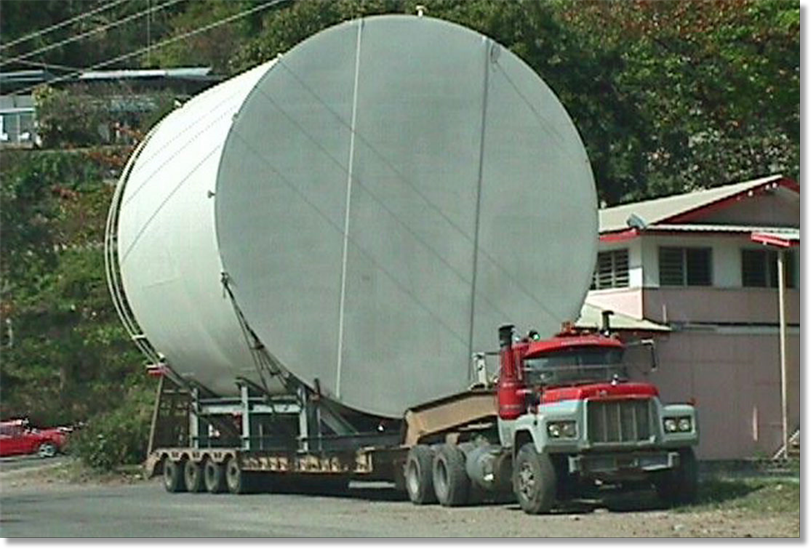
Diving in PNG, on some of the best sites ... near Bootless Bay, Port Moresby
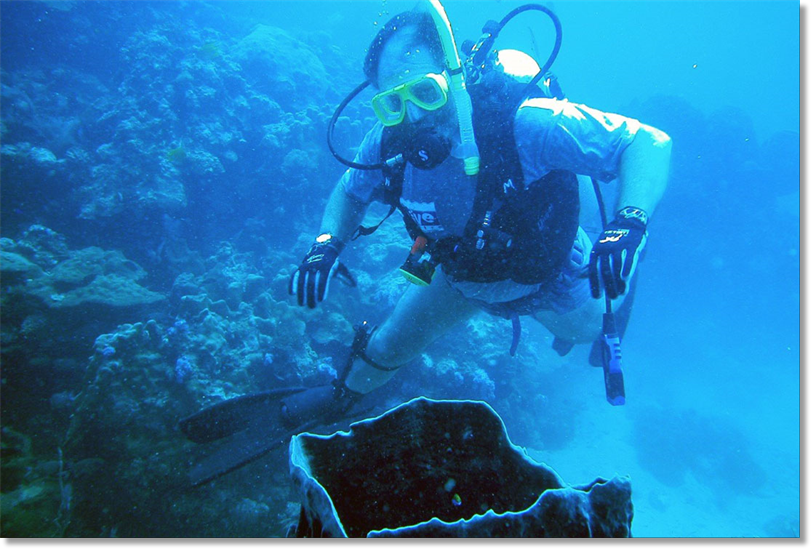

PNG Govt initiative to control AIDs etc ... Karamap Strongpela Kondom; Tok Pisin is a descriptive language
Comfortably Equatorial, at Mbandaka, DRC ... “Gift of MONUC”, to delineate the Equator (mid 2006)
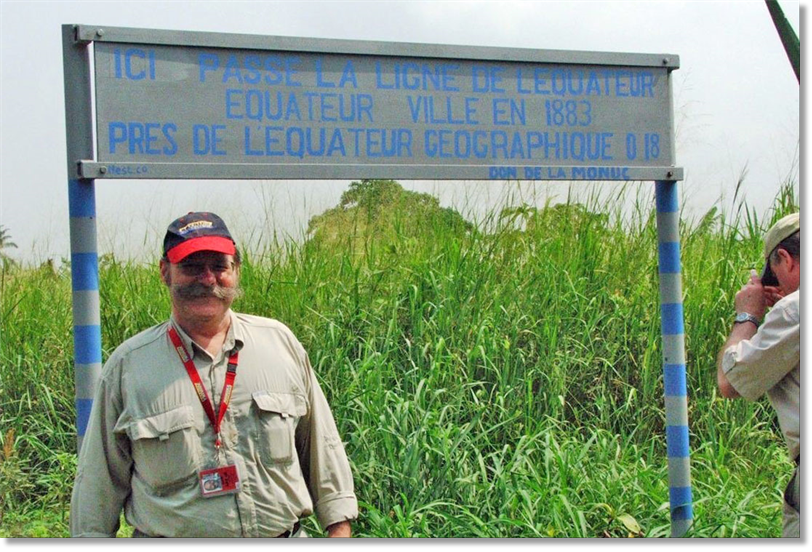
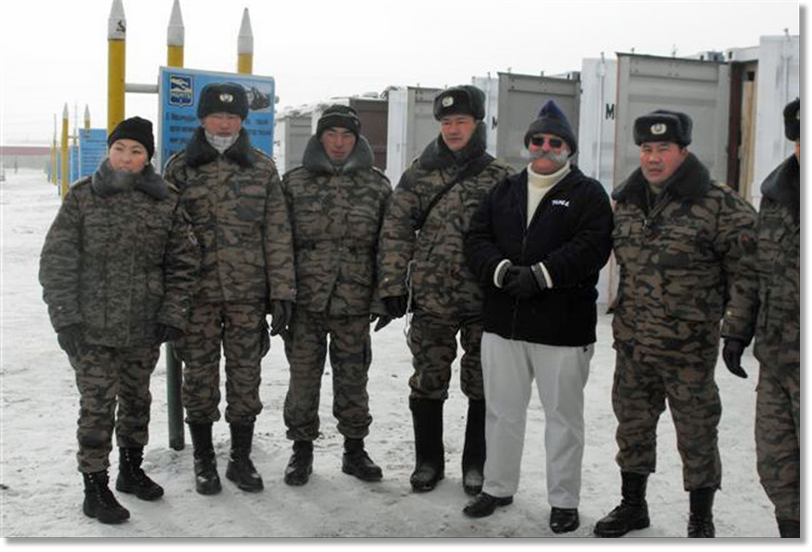
Cool, to understate it, at UlaanBator (Jan 2012), Mongolian Army preparation/deployment for UNMISS
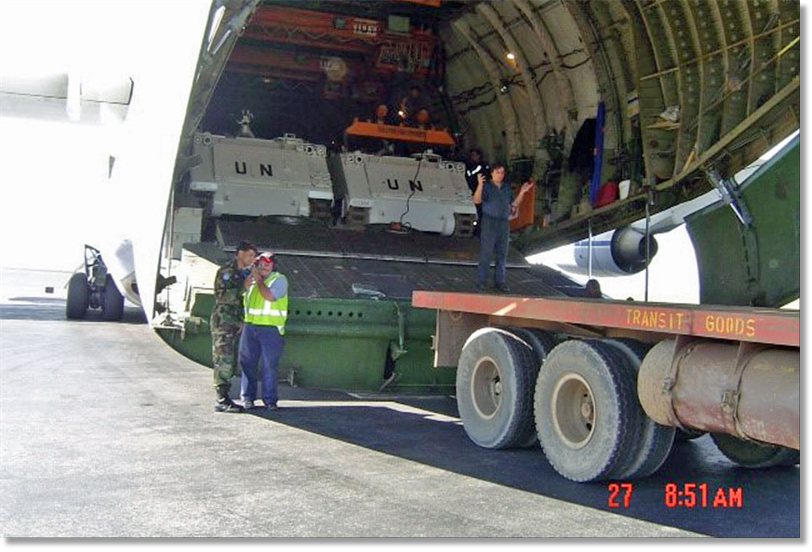
Bujumbura, Burundi (Nov 2004), receiving Pakistan Inf deployment to Uvira, DRC
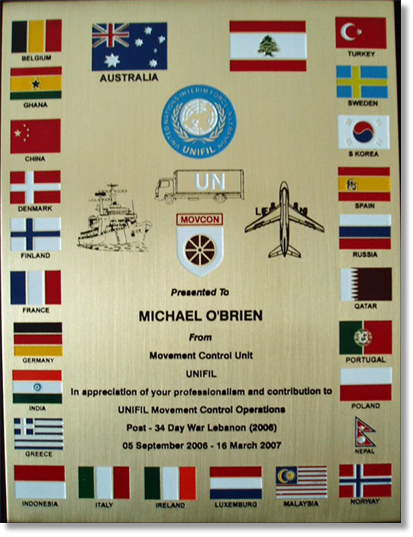
UNIFIL Thanks (Sep 2006-Mar 2007)
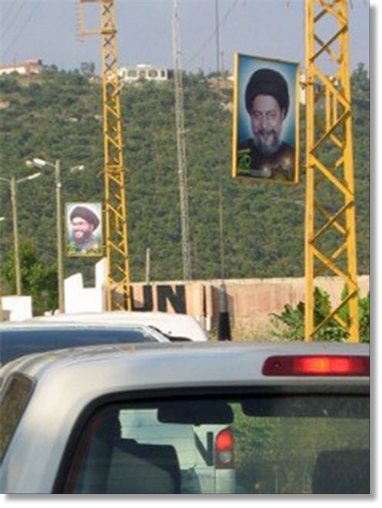
UNIFIL “Welcome”
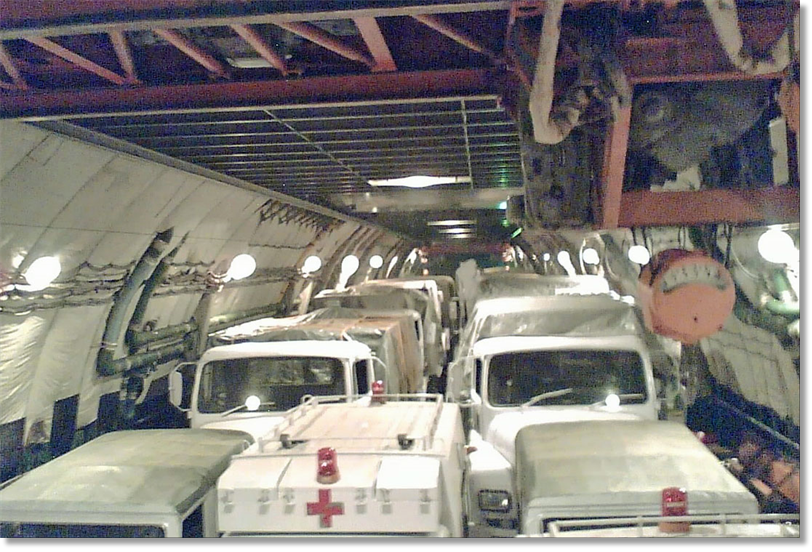
Antonov An-124 loaded for deployment of Contingent-owned Equipment (maybe Indian Inf)
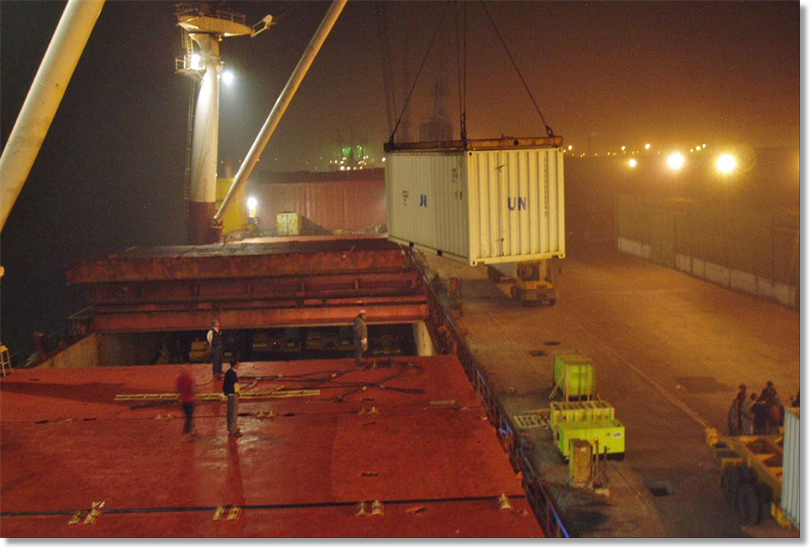
Chittagong, Bangladesh ... Infantry deployment, vessel loading
From: Richard Lloyd, Dunfermline, Fife
Subject: Life after the Air Force
After I left the RAF in 1979, I joined British Aerospace as one of the first salespeople for the BAe 146 (now Raytheon RJ 100). Because I was a French Interpreter, my territory was French-speaking Africa. This was an interesting job in itself, requiring working with Governments, banks and airlines simultaneously to effect a sale. The 146 at that time sold for $10m a copy, so it wasn't peanuts.
I eventually got tired of being away from home and my wife and children, and of finding my hotel reservation not made, or being subject to me providing 'inducements' in exchange for a bed. Not to mention battling the numerous 'night fighters' who seemed to inhabit the hotels I got booked into. While some of the countries I visited were apparently pretty civilised, all were corrupt, and many desperately poor. Looking back it was very interesting and educational. So far from being the de-mocracy I sought, BAe Hatfield had at that time 6 levels of messing, reflecting a Byzantine eating status, which did not necessarily reflect job responsibility. Think air miles and tier points and you may come some way to understanding!
Our sales training had been done by a small training consultancy called AMM, based in Welwyn village, and I applied to them for a job and was accepted. This was the start of a long career as a trainer and facilitator which I follow today, but much was to happen in between. Our clients at AMM were pretty diverse and included Airbus Industrie, BAe at Hatfield and Chadderton, ICL, Hewlett Packard, Perkin-Elmer, Honeywell and Metier (first company to supply man-sized project management software). Helena Rubenstein, Wilkinson Transport and National Carriers were also cli-ents. After 3 or 4 years of this, I suggested we might open an office in the Netherlands to support our increasing work in Continental Europe, and offered my services which were accepted. For a year I commuted weekly to Amsterdam and built up some new clients including Amdahl (Compu-ting) and Aeroformation (training arm of Airbus), meanwhile back in the UK I had sold our services to BAe Kingston and we trained the Hawk and Harrier sales teams. Running a class at Dunsfold while a Harrier hovered outside 500 feet away was distracting to say the least! We moved house from Bedfordshire to Gouda, took on some staff and shared an office with the Dutch arm of Metier. We loved living in Holland and were made so welcome there.
The job of 'Rest of the World' trainer came up with Metier (ie not the USA!) and I applied and got it. This meant a sad leave-taking from AMM, and a return to UK after 3 very happy years in Gouda. Working for Metier as an employee was easy for me as I had trained many of their people, and their offices in Hayes Middx were easily accessible from our new home in Great Kingshill, Bucks. My new job involved a lot of travel to a lot of new places, especially the Middle and Far East, and Australasia. I undertook a senior management survey to do with succession planning, and interviewed the top management. Shortly after this, the MD of UK and Middle East announced his retirement, and it struck me that I might do his job. I applied and was appointed. Over the next 2.5 years I reorganised the company, took us into new markets, ramped up revenues from $18.3m to $24.1m and got fired!
I took on a one year contract as General Manager of an unlikely joint venture between PA Consulting and Carlson Marketing, selling and developing large scale distance learning projects for people like Lloyds Bank and the Rover Group. I reorganised this company too.
I was headhunted to join some former Metier colleagues who were developing a new project cost control software product, as Operations Director. I thought I might make my fortune, but having plunged everything into it, eventually realised it wasn't going to happen. By now we had moved to the village of Weald in Kent, where we settled for about 15 years, where our children really grew up, and where we made lifelong friends.
I joined another company started by ex Metier people as European Sales Manager and spent the next 3 years successfully building up, training and motivating a distributor network from Finland to Spain, with everything in between. Some weeks I'd be in a different country every day.
I suppose my frequent job moves were because I wanted to pack as much in as possible, and be-cause that's how it had been in the RAF, but maybe I'm just rationalising.
Next I set up in business as Richard Lloyd Associates and was fortunate to get good work with AMM again, with an American friend running a project management business called LCMS, and with various smaller clients.
In 2008, I was approached to join Saville and Holdsworth (SHL), where my role was to work with the majors (SAP, Oracle, PeopleSoft, Microsoft) to sell the idea of embedding psychometrics into their HR modules. This was a great time for me. I had a super boss, a wonderfully fulfilling job, with global responsibility and influence. I learned a huge amount about psychometrics and testing gen-erally. SHL eventually reorganised and the time came in 2001 for me to move on.
Next I joined a small business consultancy in my home village of Aberdour in Fife. ForthRoad spe-cialised in meeting facilitation, change processes, and to some extent, training, and many of the skills I learned there, I have since used. We moved to Dalgety Bay, where we lived for 16 years. Most clients were in Oil & Gas and that's the sector where I mainly operated latterly. ForthRoad took me to the USA to run project management courses, implement change and to facilitate meet-ings for BP, to Aberdeen for work with Shell on a meetings improvement project, and to Baku in Azerbaijan to train young BP people in soft skills.
Guess what next? Forth Road reorganised and realised they did not want to be in the training business, so very kindly made me redundant and gave me the business in Baku, off which I lived for the first 3 years of the existence of the company I'm proud to have created with the great name of Transforming People. It's a great name, because people tell me so!
I was a one man business with a bunch of associates and saw no reason to change that. I worked mainly in Oil and Gas, and through my association with a company called W2, spent 12 years helping to facilitate courses with their client Schlumberger. I helped them with HSE, Leadership, coaching and other skills. I have done this in Russia, Kazakhstan, Turkmenistan, Azerbaijan, UAE, Nor-way, Saudi Arabia, France, Oman, Algeria, Romania, Libya, Tunisia, South Africa and throughout the UK. I completely loved what I did. I could tell war stories, but also deal with people's day to day realities as managers. I got to see some great places. Other client work has taken me to Malaysia, Singapore and the Philippines. This article was originally written in Stavanger!
In 2015 my work in Oil and Gas came to an end. By then, I had done more than eighty assignments for Schlumberger.
In 2013/14 I had begun to work with Graham Duffin, a Church of Scotland Minister, who was planning a renewal initiative for the Church. This initiative became something called Path of Renewal, and Graham suggested I might want to apply for the role of Coordinator once it had been approved by the General Assembly. I was terribly disappointed not to get the job, but was offered the role of Coach/Mentor as a paid consultant, and even happier when I was allocated the North as my ‘territory’. I became Coach/Mentor to 5 CoS Ministers based variously in Shetland, Orkney, Sutherland, Inverness, and Kintore. The person who became Coordinator, Rev Liz Crumlish, was so evidently better suited to the role than I would ever have been, and she was a delight to work with.
The 5 Ministers became great friends over the 3 years I worked with them, and I still see them from time to time.
In 2019, we moved from Dalgety Bay to a 2 bedroom ground floor flat in Dunfermline and I began to consider myself as retired. But who knows what the future may hold, and I may yet return to paid work.
In November I shall again be at the Movers Reunion with some old RAF pals - I'm a very fortunate guy, but then, you make your own luck don't you?
What did the RAF teach me that's been important and is still today? The following. Work hard but don't forget to play hard. Make sure the troops get their ground sheets first. Do things in the right order, and communicate in the right order. Integrity's important. Leaders need vision, communica-tion, trust, consistency, enthusiasm and flexibility and humanity to succeed. Reinventing yourself every few years is not a bad thing to do, and you may be amazed by yourself and what you know, and what you can pass on.
I'm unfailingly proud to have been in the RAF. It informed all of my subsequent work. Work can be fun. Work should be fun. I had fun & I think I mostly did a good job.

Subject: Life after the Air Force
Hi Tony,
After leaving the RAF from Hereford and following a short recouperation break I got a job working in a large motor spares distributer for a couple of years. During this time I passed my PSV driving test and swapped my job to the local bus company until 1976 during which time I took and passed my HGV Class 1 driving test.
In 1976 I left the buses and went driving 40 foot artics on food distribution for about 18 years delivering frozen foods around the country for various supermarkets.
My next and last job which lasted for 21 years taking me to retirement was delivering urgent blood for the NHS all over the country, a very responsible but satisfying job.
I hold many memories of all my jobs but none more than the RAF and NHS. Must be the uniform and all the great mates I met along the way. Where have all the years gone?
Best wishes,
Stan
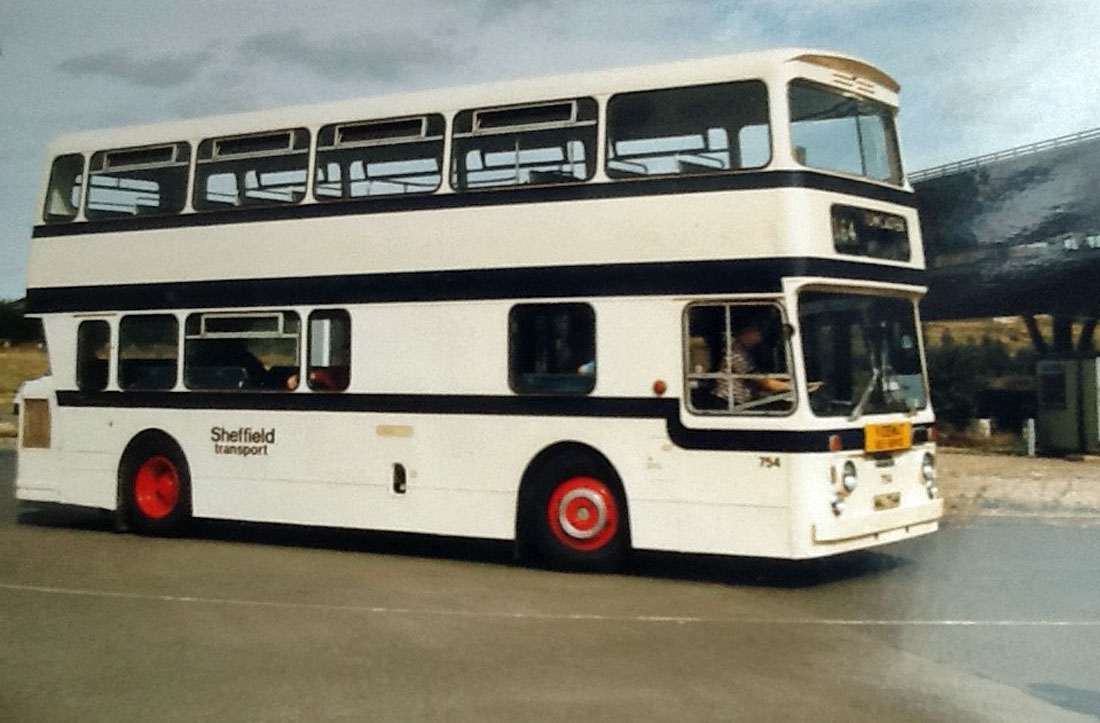
From: David Powell, Princes Risborough, Bucks
Subject: Life after the Air Force
Dear Tony,
What happened next? You don’t really want to really know, unless you suffer from insomnia, so just a few highlights.
Exit strategy. It was a bit crazy when I bailed out at 50 to take advantage of a clear-out-sale redundancy. No time off for resettlement courses, apart from a day’s psychometric, after which ideas of being an astronaut were then abandoned. Also, I only had 2 weeks resettlement leave, as difficulty in finding anyone left to take over, and I had to be out by 50 years old or I would lose money. We were investing most of the redundancy loot on moving to a bigger house.
The last minute (2 months actually) solution was to hand RAF Log Ops back to my predecessor, Mike Metcalf, then in a NATO job in the States, but with a gap. So we both organised to go to the same NATO meeting coming up in Scotland where we bunked off the morning of day two. This was then spent in the foyer of an Edinburgh hotel with a large pot of coffee for the hand-over/hand-back.
My exit plan was that after all the excitement, I would take two months off, armed with useful books such as What Colour is your Parachute? by Richard Bowles (highly recommended), The Idiots Guide to Being a Consultant (even more highly recommended) and The Real Idiots Guide to Starting Up On Your Own, and work out what to do with the rest of my life.
Day 2 of ‘the plan’ and a call from Graham Grose (colleague at Strike Command ten years earlier) now with a subsidiary of BAe Systems: ‘Hear you’re available, got a study going which you may be interested in?’
And, that’s how it’s been ever since. 27 years later, I have still not got round to the 2 month’s think about the future. My business plan has been very simple – No Plan. Just a 4 line check list: Nice people to work with? Interesting? Fun? Reasonably family friendly? Give it a try.
Back to that very first ‘That sounds interesting’ with Graham and a few weeks later I was off solo to interview my successor. I turned up on the 4th Floor. Mike’s greeting was: “Got to go to meeting. Leave a note of what I told you.” So I sat at my old desk and interviewed myself!
I told you about the pre-release psycho thing. During this, we went through logistics? Tick. Consultancy? Tick. Etc? Tick. Then I said that what I really wanted to do was voice-over caption narrating on railway videos! When they had finished hooting, they patted me on the head and told me to forget it; the voice-over world was full of out of work actors!
A couple of months after leaving, I was in a Model Shop at Aston Clinton having a natter. I don’t know how the conversation got round to it but Brian Jones mentioned how earlier that day he had been ordering some videos and Steph South, who ran Transport Video Publishing (TVP), was in a right funk. He had paid for a sound studio session in Soho the following day, and the ‘Voice’ had cried off sick. What do you do?
Exactly, ask for the number and ‘blag the gig!’ Next week I will be off to TVP, now at St Albans, to record my 225th programme with them! Nowadays, I also do some of the research as well as sound editing of the two-hour DVD. Lesson – if you have a dream, look out for the opportunity and grab it!
This tale didn’t happen next, but at one time I had got involved with a group focusing on general consultancy in the SME (small and medium size enterprise) sector, and invited to join two colleagues doing a couple of days a month middle management coaching with a small telecoms outfit in Newbury. You may have heard of them? Vodaphone. This was when Chris Gent would buy another company every weekend. Eventually, they got to the size where they set up their own training school, so bye-bye to us. But, it was an exciting time to be working with them. We recycled our executive training stuff and switched to the care home management sector: delete ‘mobile phones’ and replace with ‘bed pans’. Lesson – all this management stuff is basically the same whatever the job – just different jargon and labels.
One last what happened next? The only job I actually got from responding to an ad and sending in a CV was for “Business school looking for module lecturer in strategic management, 13 one evening a week sessions.” That was in 2003, and it resulted in becoming a part-time (although soon teaching more than some full timers) associate lecturer at what became Bucks New University. I finally pulled out in 2016, by when most of the great team I had joined had retired, and academia had changed. My final task was supervising a Masters dissertation on Grain Distribution in Kazakhstan. Well someone had to do it.
Tony, must close. Need to finalize a visit to East London University in Docklands as part of a course accreditation visit, another T-shirt! For nearly 10 years I have been a course assessor for the Association for Project Management (APM). Also a 5,000 word draft script just arrived in the in-box from TVP to review and tweak.
Stay safe
Best wishes,
David Powell
F Team UKMAMS 1967-69.
(Crickey that’s over 50 years ago!)
From: Gordon Gray, Lechlade, Glos
Subject: Life after the Air Force!
Hello Tony,
Well, I’ll call this topic a revelation or being called to account?
I’d PVR'd in October 1985 after nearly 27 years from the date of attestation in 1959, my reasons for leaving mainly for our children's education.
Being born into RAF family life in 1943 as father was time served for 36 years until 1965 my schooling had been turbulent and, about to move school again after ‘O’ levels, I sat the RAF Apprentice exam. I had ideas of joining the Merchant Navy as a Navigator until I was told that "They’re all Borstal boys!" (Borstal is a custodial institution for youthful offenders in the United Kingdom and parts of the Commonwealth).
So, as a Warrant Officer aged 42 and three past attempts through Biggin Hill OASC (The Royal Air Force Officer and Aircrew Selection Centre), I felt it appropriate a second career could take me on past the age 55 year point of retirement.
My first year after leaving was managing a warehouse in a large multi-national retail store. Of course their practices bore no similarity to anything like the structured methods of Service store accounting due to the nature of the end product, which was selling the goods. Being told in no uncertain terms by a 'Spiv' of an Operations director that I could not bring my service experience to his organisation really cemented my decision to discontinue in that work. The fellow was later removed for his disreputable conduct. The organisation folded many years later after the emergence of B&Q and Do-it-All.
I accepted the twelve month interval as a grounding in civilian employment and, somewhat wiser, but it was not a comfortable experience by any stretch of the imagination. A couple of months after leaving that warehouse management I joined Honda UK Manufacturing at South Marston airfield, the old Vickers Supermarine site. No one except the HR manager and of course the Japanese who took me on knew at the time what was about to be announced within 3 months of my joining.
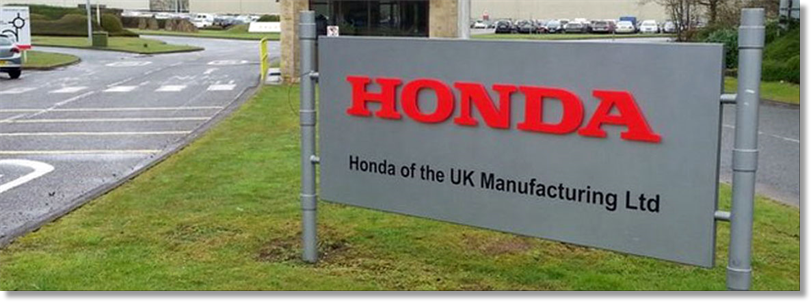
At the time, work involved only inspection of imported new Honda cars and those from Austin Rover Group (ARG) vehicles. (In those days Honda and ARG had a 20% share in each other) Japanese philosophy places the greater importance of the business with those on the production process, so whomever joins and in what capacity, works on any designated manufacturing line job for at least a month. It was interesting work, with very long hours on a day shift profile at the time in building up the Company.
Initially after induction into HR my role was to source temporary ‘Associates’ from local agencies to work on line inspecting and driving both Japan imported and ARG cars.
Then the announcement to manufacture engines came shortly after and my role was to continue recruitment for permanent jobs from within the locality. Not such an unreasonable task as the closure of the Rail works and it's environment produced steady resources of applicants; in a period of fairly high unemployment.
Car production commenced in 1992, with my recruiting role increasing, continuing along with other responsibilities in contract services of Security, Laundry (white uniforms), Catering, Cleaning and Quality Circles. A couple of those elements in HR necessitated a period experiencing Japanese practices at Suzuka Car Plant in Japan 1989; a much older facility but the same ethos. Pachinko, Mount Fuji, Shinkansen and Karaoke bars spring to mind.
On retirement in December 2003 at age 60.5, obviating the necessary policy change about retirement to age 62 in Honda UK Mfg., then a couple of years Ushering ad hoc in a Crown Court, I finally ended my paid working life.
Since then Turkish North Cyprus for 7 years; after which living in Wiltshire again, Derbyshire and Gloucestershire.
With grandchildren aged 25 and 20, both young ladies, one with degree, the other nearly there, in a changed world compared with my youth, it’s sometimes very difficult to comprehend their lives and guess what the future holds.
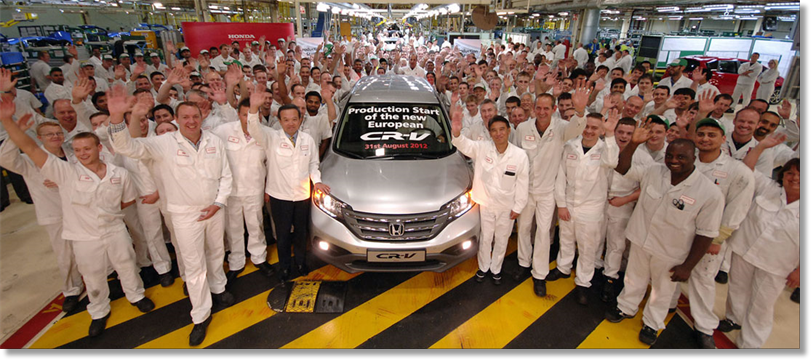
From: Peter Orton, Camberley, Surrey
Subject: Life after the Air Force
Hi Tony,
In common with many of us 12 year men, I was not too keen to leave my tied cottage, secure job, mates and way of life. The actual transition to civi was thankfully quite seamless. I joined BA In 1977 there was not the stigma that now exists with that brand, it was almost respectable.
The next 38 roller coaster years took me up and down the grades, and in and out of the disciplines, as changes in culture and management (?) dictated direction, or lack, of company heading.
I joined BA Cargo in Manchester as a lowly cargo handler, just as civil aviation discovered that restricted articles needed some form of control. This was during the confusion of merging state owned BOAC and BEA, This was the first lucky break. 3 years later I was a training officer based in London in receipt of a generous relocation allowance. In RAF terms it would approximate to promotion on posting from LAC to Flt Sgt, with lucrative LOA. In the golden days post privatisation, with (Lord) John King and (Sir) Colin Marshall at the helm, experience and effort was valued, the ethos at that time was quality and customer service, the only way was up!
Next on the job front was Ramp Superintendent Contact Handling Unit (T2 & 3). Not my biggest success, I was defeated by corporate politics-v-union contracts, and was forced to relinquish this post. The culture was becoming PC, and advancement based on gender, then ethnic quotas. No real bitterness, but a little sad, arse licking and gamesmanship were never my strengths.
A lifeline was thrown, from an ex-30 sqdn Beverley Q (ALM) who needed safety and survival trainers for Pilots and Cabin crew. Change of direction, but I had really enjoyed Mount Batten, Troodos etc., and at least spoke the language.
A new set of skills and knowledge had to be developed, but some help and support came from; RNLI, RAF survival school, CAA fire school at Teeside, FAA Oaklahoma, human factors at Institute of Aviation Medicine and Cranford University.
I never looked back, I was as happy as a pig in poo-poo, and surrounded by rather decorative cabin crew.
Following 9/11 we had to take in-house responsibility for crew security training, another set of disciplines to master. Training was provided by Thames House, Met Police etc., Shrivenham, and some informal liaisons formed with some military and navel formations. This lead to more advances through the pay grades and shoulder rubbing with the men in long trousers.
The final stroke of luck came as changes to pension law, retirement options, and yet another cultural change (loss) of direction by our combative CEO allowed me to phase out, over 5 years, as a part time u/t pensioner.
My post RAF life had it's solid foundations formed during my SAC 12 years in the 60's & 70's. The early DG courses, Tristar, and sale of cargo systems, maintained a contact with the service, not to mention the rehab of pilots to mortal beings as they joined us. One highlight was dropping into Brize Norton with a 747 so that some Pongos in black suits could play with it (Lame Duck).
My only disappointment is to witness the decline of a once proud airline. 12 years RAF, 38 years BA, 5 years nice pension, not really a bad life. All that time brilliant work mates. Thanks to all of you.


Subject: Life after the Air Force
Left movements in 1983. Had several jobs and when I was a shift manager at a Buford restaurant, Bruce Oram told me a job in day cargo imports as a civvy was available. Applied and got the job and had many good times with bosses who included Bruce Oram, Owen Connell, Jim Muir, Sam Borland and Pete Biggs.
Moved to Rhyl in 2002 to own a guesthouse. Retired in 2019 and now I'm Branch Chairman of Rhyl RAFA.
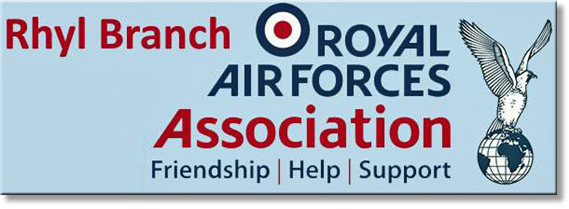
Subject: Life after the Air Force
Hi Tony,
Hung up my Blues, threw away my DPM's and never looked back. Loved every minute of my Air Force career but haven't missed it since retiring nearly 10 years ago. I still keep in touch with a few buddies still serving but find it difficult getting my head around the current Health & Safety, beard growing and gay pride stuff - certainly a different outfit than when I served. Seems the jobs are still getting done tho and the taskings full on.
After retiring to our little Country village I made a major blue in getting myself on several committees - Community organisations love ex-service personnel! Currently President of our local Returned & Services Assn, Vice-Pres of our Agriculture & Pastoral Show Assn, Committee member of Recreation Park User Group, the Museum Board, Disability Advocacy Network and Save Our Grandstand campaign [trying to stop Council demolishing our 120 year old grandstand]. Might have to step back soon, someone else's turn.
In the meantime Carolyn and I spend plenty of time with family, especially grand kids. Also love fishing, tramping and cruising in our motor home - currently on the way home after a complete circuit of the South Island.
Cheers, Budgie
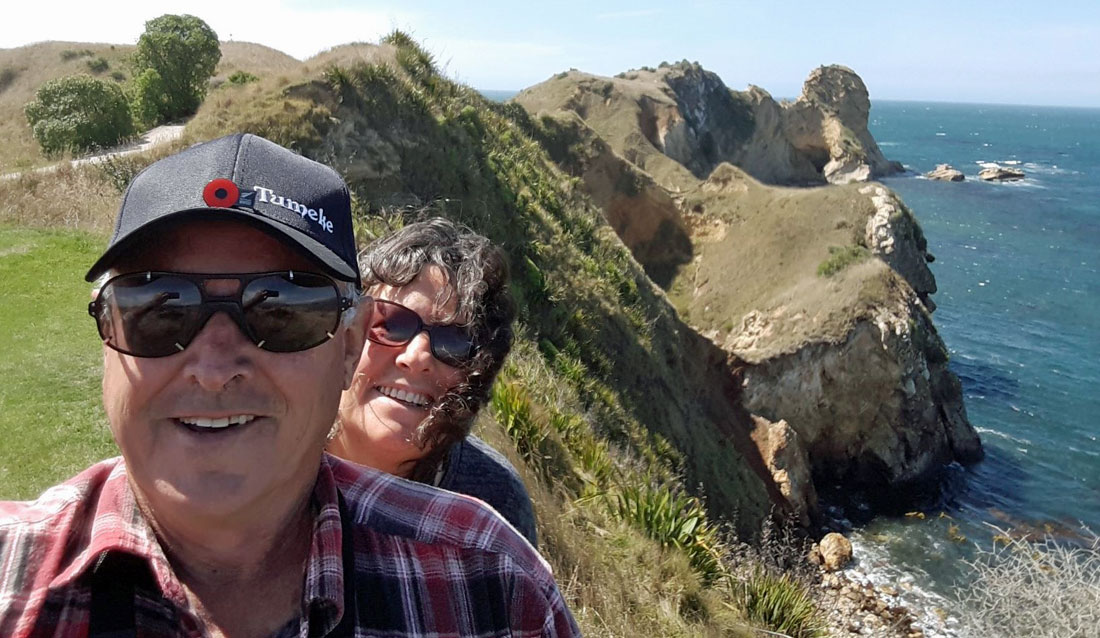

Subject: Life after the Mob
1988 - Months after having just bought a new house in Calne the RAF decided to promote me and post me to RAF Wittering to take over from John Billingsley, although I was grateful for the promotion, Wittering meant living in the Mess and travelling home to Calne on Fridays. Although the work was interesting and I had a great team of blokes, the commuting wore me down. About six months in, the RAF decided I needed a six-month holiday in the South Atlantic! This is where I made the biggest mistake of my life, I PVR’d with 15 year to go (take note present-day Movers). Within months I was out amongst these strange beings called Civilians. I went straight into the Auxiliaries and stayed there for two years.
1989 - I took over an existing video rental business in Calne and made good money for the first year but after moving to new premises a big multi-national moved in and blew me out of the water.
1990 - Left with thousands of videos, I decided to sell them on the open-air markets, so I bought a 20ft stall and did the markets full and part-time for 28 years.
1995 - I got a job as the Hall Manager in Calne Town Hall. Mixing with local Councillors and the social elite of the town was an eye-opener!
1998 - I got a job with a local light-haulage firm as a driver, I certainly got to know the south-west.
2000 - I was employed by Wiltshire Police as the assistant Alarms Administrator. My job was to reduce the number of false alarms Officers were attending (some 40 per day at the time!) and attend liaison meetings with other Forces in the S.W. Region. During this time, I acted as the Force H & S representative for Unison, this was a secondary duty that required me to travel throughout the Force. (away from the office .. yippee)
2005 - I got moved up to Alarms Manager, and yes, I did manage to reduce the false alarms to none, but only for one day. I left in 2010 after 10 years.
Since 2000 My wife, Doris, and I had ran a permanent indoor Market Stall at Blunsdon, Swindon where my wife sold, mainly, silver and amber jewellery and I carried out jewellery and watch repairs, mostly replacing watch batteries. I also bought and sold gold and precious metal during this time. In 2018 they announced the closure of the Market so that was retirement time!
My re-introduction to civvies was a huge culture shock. Apart from the Police, they had a totally different attitude and work ethic from the Forces, I often wondered how the employers I worked for survived with the negativity of some of their employees, however, they seem to muddle along and I’ve met some great people “out here” (and the lovely lady who married me in ’82 has stuck with me and kept me sane!).
From: Mike McCann, Lamalou Les Bains
Subject: POST MY MAGNIFICENT RAF CAREER
NEW CAREER 1 - Against all the odds, RAF Sealand won its in-house bid, in no small way thanks to another mover, Alex Swift. After a couple of years as the Director of Logistics (OC Supply & Movements Sqn in old money), and having been offered oodles of dosh by a BAE Systems (BAES) spy in the Mess, I decided to try my luck with BAES in KSA, on the Al Yamamah programme. So, towards the end of 1998, I asked for early retirement and went off to RSAF Base Tabuk, where I met up with another old mover, Gerry Keyworth, The role was to take my vast knowledge of Supply Chain and Logistics and turn the RSAF, overnight, into a powerhouse of modern Supply Chain thinking.
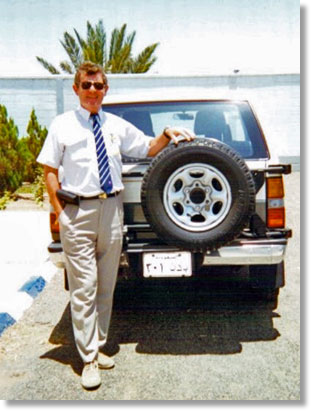
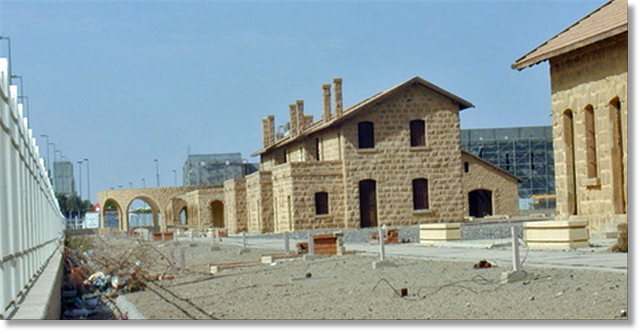
Tabuk 1999
Ah well, another fail. Anyway, after a year of banging my head on a brick wall, I was sent to work at HQRSAF, in Riyadh, as an “advisor” to the Director of Supply. Ha, I hear you cry, let’s see how that will work out. Well, my vast store of Supply and Logistics knowledge was set to work as the RASF Al Yamamah Aero Engines Contract Manager. My advice was mostly ignored. Nevertheless, I ended up managing the RSAF’s entire fleet of aero engines, large and small, UK and US provided. I had a brilliant time in Riyadh and loved Saudi Arabia.
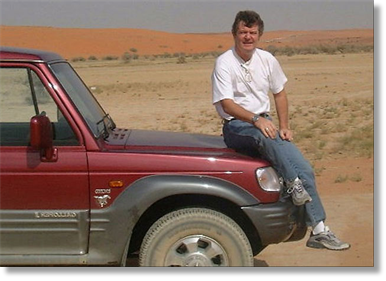
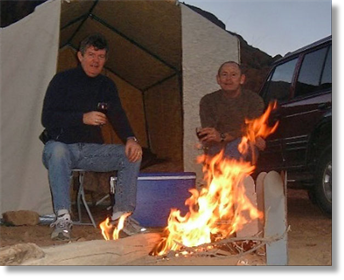
The GAFA 2002
Camping in the Al Nafud Desert 2003
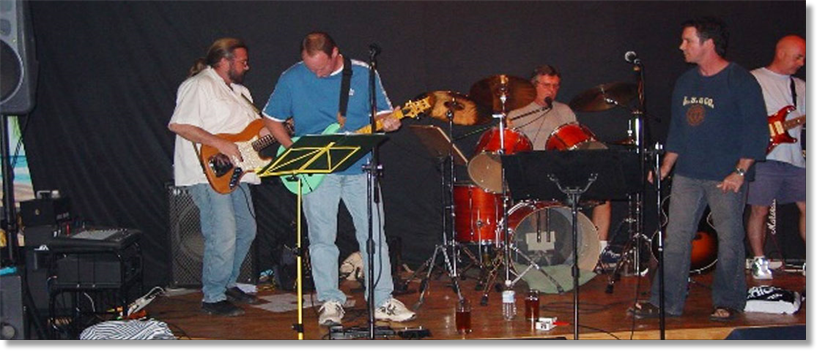
I played drums in a rock band called the Usual Suspects, playing all over Riyadh.
I suppose that I must have thought that I was indispensable, as 6 and a bit years later, in 2006 and with no reason given, I was declared PNG and booted out of KSA. Plus ça change…
NEW CAREER 2 - Anyway, after a bit of humming an hawing, I was offered a job in the UK, with BAE land Systems, as the In-Service Project Manager for the insertion of some 500+ FV430 Bulldog Armoured Personnel Carriers back into service after an engine/transmission system upgrade. As this was around the time of the furore over the unnecessary deaths of British soldiers in soft-sided transport in Iraq, several Bulldogs were retro-fitted with reactive armour and sent out there and the vehicle, notwithstanding its propensity to overheat in Iraq (who knew?), was a great success. As the fleet grew, post modification, they were delivered back to the Army, across the UK, including some out in BATUS, Canada. Based out of Leeds, I moved around between BAES Newcastle, Telford, HQ Land and Abbey Wood. Looking after my metal charges, as well as a team of Loggies and Field Service Engineers (FSE). Between us, we set up depth repair contracts all over the place, including in Canada, where I had a team of FSEs for the summer season. I have to say that it was most enjoyable time, with a great team of guys. We even won the Chairman of BAES Silver award 2007. Kudos all round.
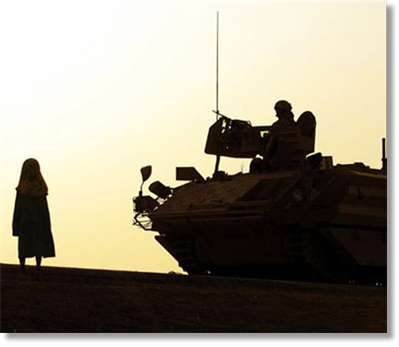
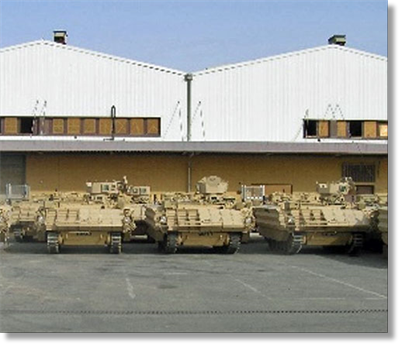
Bulldogs at the COB Basra
Get Out of My Way!
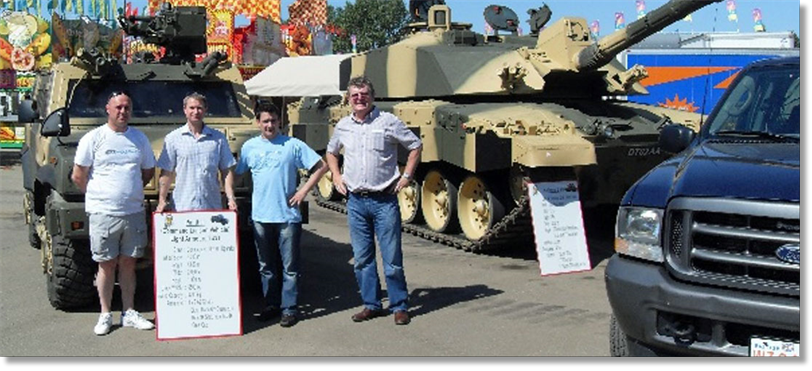
Medicine Hat, Alberta, Rodeo 2009
Anyway, all good things must come to an end. BAE LS decided that it was going to close its offices in Leeds and, as a Leeds-based asset, I was offered redundancy. What could say? This would be a great time to retire. So, I accepted and in Dec 2010, I retired. Well, at least I thought I did.
NEW CAREER 3 - By mid-2011, I was climbing the walls. So, I gave my name and CV to a recruiter, who gave my name etc., and I was offered a job as the Head of Materiel and Logistics at Air Tanker, a consortium responsible for the in-service support of 14 Airbus 330-200 converted passenger jets, under a PFI with the MOD to provide, pax, freight and air-to-air refuelling capability to replace the VC10 and the Tristar.
Initially, we didn’t have any aircraft, as they were scheduled to be delivered over the next 4 years. However, I did have an empty store, some material controllers and some RAF suppliers – we were a joint team with the RAF to ensure ongoing trade viability. Oh, and we had thousands of boxes of “stuff” to be put away, in a storage area which was about half the size needed, so a new Storage area had to as delivered in an EASA compliant form and that I had to go away and be trained as an EASA Form 4 post holder? Moreover, we had so set up global Supply Chains in support of Voyager as the new aircraft were now known - Happy Days in Madrid, Seville, Afghanistan, Cyprus and MPA. Dets for the chaps to those exotic places. Lucky lads!
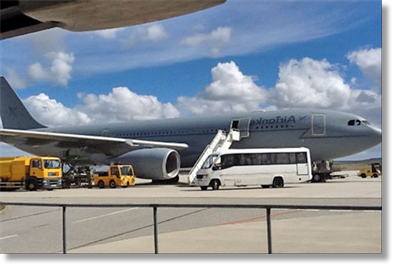

GG On the Pan at Mount Pleasant
MPA Recce Team (RAF, Civilian Engineers and Loggies)
Anyway, by 2015, things were running on rails – ha! – so I decided that it was time to move on and help my son advance his then embryonic Chinese import/export business, so I handed in my notice. In the event, my son didn’t need my help, so Sandra and I retired properly, passing our days between Harrogate and our house in the Languedoc. John Gardiner (that name may ring bells or alarm bells), who I had recruited to be my contracts support manager, replaced me at Air Tanker. He has also now retired.
Except...
NEW CAREER 4 - I received an offer to teach the English Language of Supply Chain and then to teach Supply Chain itself, to BAES Saudi nationals at RSAF base Taif, which I did 2018-2019. They gave me money. What could I say?
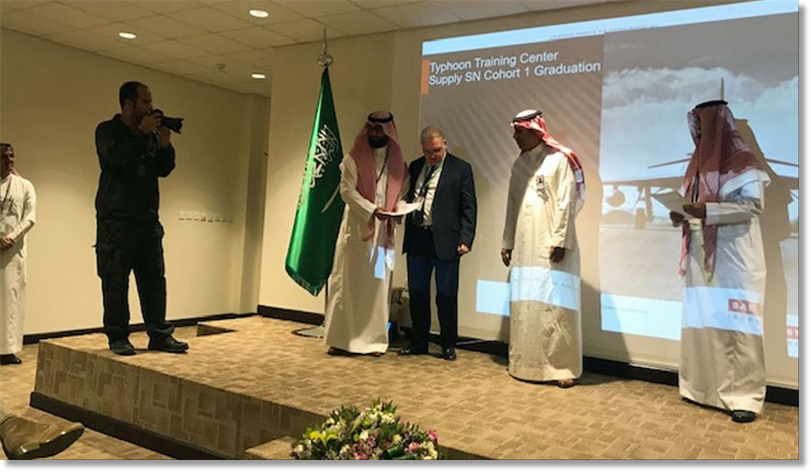
I've retired now, unless...
From: Syd Avery, Guardamar del Segura, Alicante
Subject: When I hung up the blues.
Hi, Tony,
Well, I wasn't sad to hang up my blues, I had seen enough of the squabbling between the factions on Ascension that I'd had enough.
Immediately on leaving, I took the entrance exam, for Executive Officer in the Civil Service. Much to my surprise, I passed! However, I left it too late to have an interview, so that went by the board.
We bought a Guest House/Private Hotel in Cliftonville, Margate; The Durnford. Had that for five years, and in our first year, we made a profit of… one penny! That was extremely hard work, also having to make enough money in 4 months to last through the winter. We knew several people who bought such a business imagining they were going to make a fortune in a couple of years then retire. That just doesn't happen in that trade.
Towards the end of our tenure at the Durnford, I started working part time at Manston, on the civil side. Started out on cargo then into Ops. We were called "casuals", and were not supposed to work unsupervised! Can't remember the number of times I was the Duty Manager. Learnt a great deal during this period which was of benefit in later reincarnations.
Through with working at Manston, I then worked for Intavia, or African International as a Loadmaster on DC8s. Jack Gordon was my teacher when I started. Great guy. (Which way does a fly take off?) The work was on contract to Alitalia from Rome. Main routes were to India, Libya, Germany, South Africa and latterly Australia. This last was particularly sought after as we had a 4-day rest in Bangkok waiting for the AZ 747 to pax us back to Rome.
After just over two years, I was taken on by MK Airlines, again on DC8s. Initially, I was the only non-Rhodesian, but was readily accepted by the rest of the crews. They were a great bunch of chappies and I had a fantastic four or so years with them, even when we did a touch of spring ploughing in Kano one 15 Feb! Mail routes were to Nigeria, South Africa, Belgium and Iceland. Quiet a few interesting ad-hocs where we never went with no cargo!
My ultimate foray in the aviation was with Air Foyle. Yup, the guy who owns the book shop in London. He was working in conjunction with Antonov Design Bureau of Kiev, Ukraine. ADB provided the aeroplanes, (AN12, AN22, AN124, AN225, IL76) and crews, and Air Foyle provided the work, operations and Flight Managers. Another reason was that due to Ukrainian law, only $10,000 could be taken in/out of the country. So the FM was the money man as well as doing most things that were needed for the aeroplane to operate and make sure that things ran smoothly and contracts fulfilled. I would say that this was the most satisfying job that I had, so many different loads, places, people and, no, not problems, challenges to resolve. Also, to a certain extent, looking after the crews, some of whom had not been out in the big wide world and could get into difficult situations. Things outside of Ukraine are not the same as inside Ukraine. All of us Flight Managers really earned our money.
At this time, I was living in Luton, in a cul-de-sac. I was being picked up one morning at 04:30 by taxi. I had in my brain bag some $250,000, (we threw good parties!) half for me and half for another FM. As I was putting my bags in the taxi, the driver and I were attacked by two people. I asked if I could be of any assistance, No.1 told No.2 to shoot me! To cut a short story long, No.2 didn't have a gun, he got my mobile phone in his teeth, they did not get the money and had to beat a ignominious retreat. Now, who would hang about in a cul-de-sac at 04:30 on the off-chance that someone had a quarter of a million dollars in his bag? Set up, or what?
I left Air Foyle due to a dispute between the Ukrainian Government and a Cypriot gas company. I had my aeroplane seized. I was arrested and lumped in Brussels prison for a night over this. ADB thought I should have done more to prevent the aeroplane being seized so they said "Bye bye." I was, however, offered my job back after a year, but by this time I was doing something else. So, they couldn't have been too angry with me.
After this, I gained my PCV licence, a coach driving test at 60, quite testing (LOL). Finished my working career driving for National Express between Dover and London; I was living in London at the time. It was a job which I enjoyed into retirement.
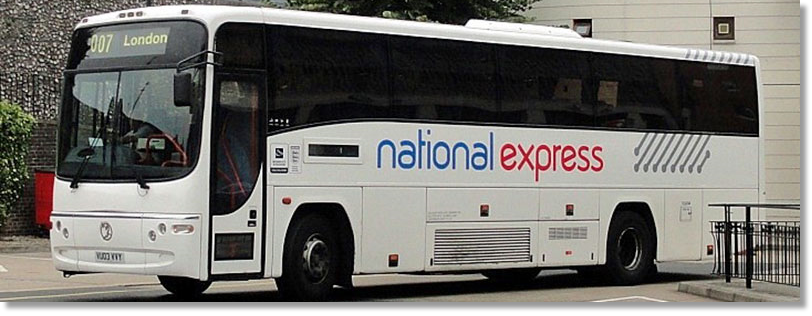
Personal wise, I've made quite a few mistakes. People have asked me if I would make the same mistakes again. My answer is yes, if not I would not be as I am today. (I do regret the pain and sorrow I have caused some people, but you can't tango on your own.) I am happy living in Spain. I have had my partner, a Belgian Lady, for 18 years, and she has a property in Brugge (from where I'm writing this.) We spend time in both countries. So, we are content with what we have.
I loved seeing XM496 at Kemble; brought a tear to my eye. Do I regret leaving the RAF? No, not at all! Was I worried when I left? No! Did/do I miss it? No!
Operation Pincer - Christmas Island
As the last Operation Pincer cargo flight departs the island, we thought we would look back at some of the aircraft that have operated through Christmas Island this month!
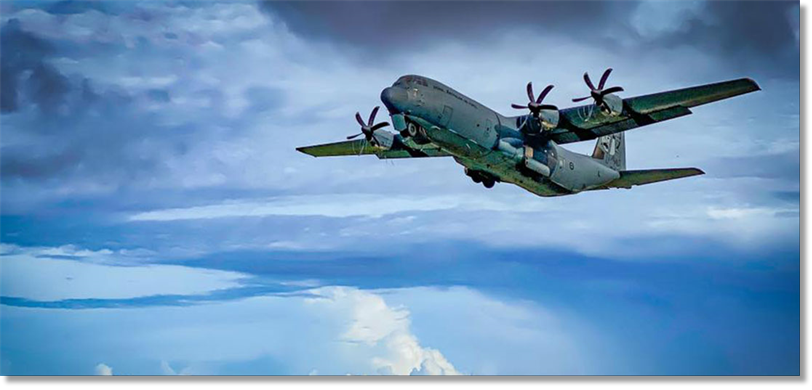
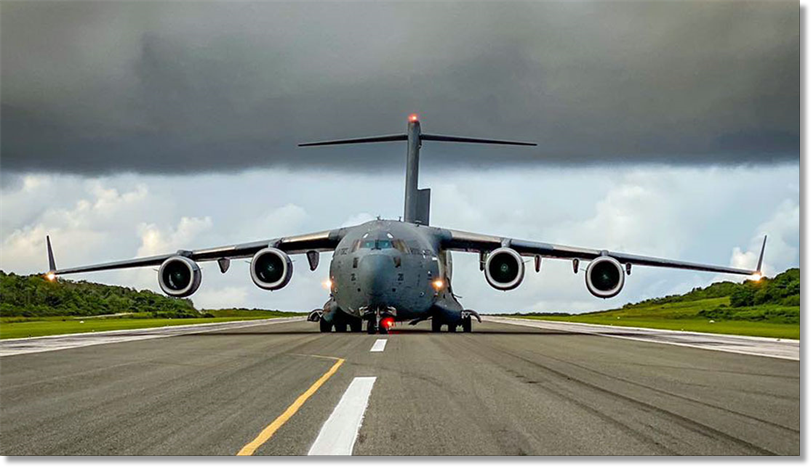
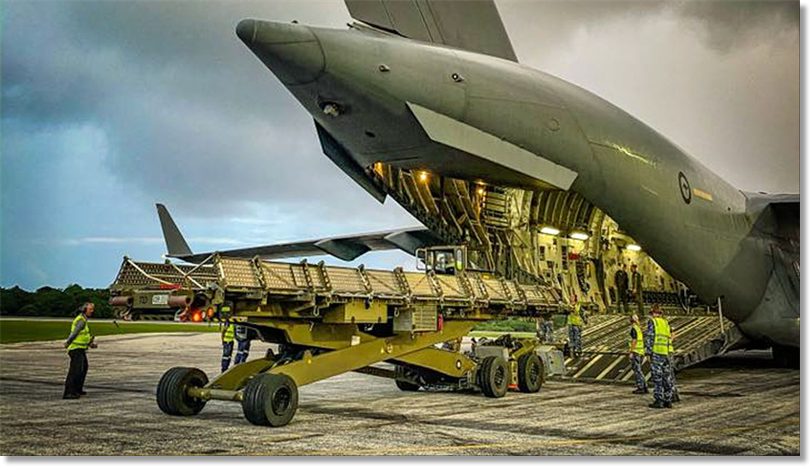
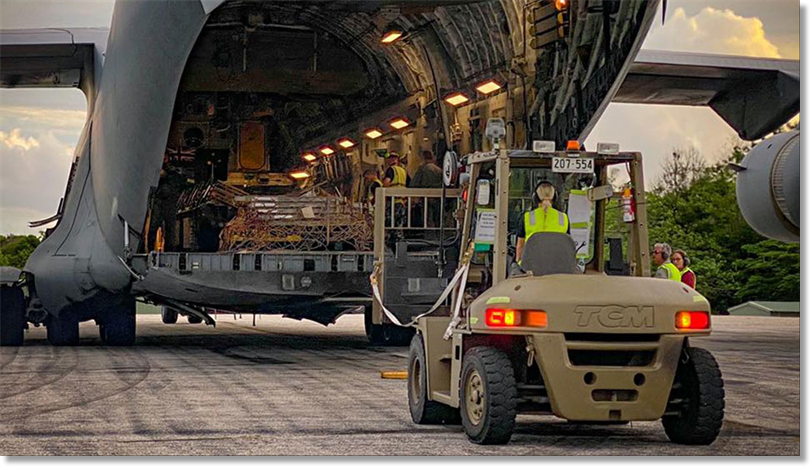
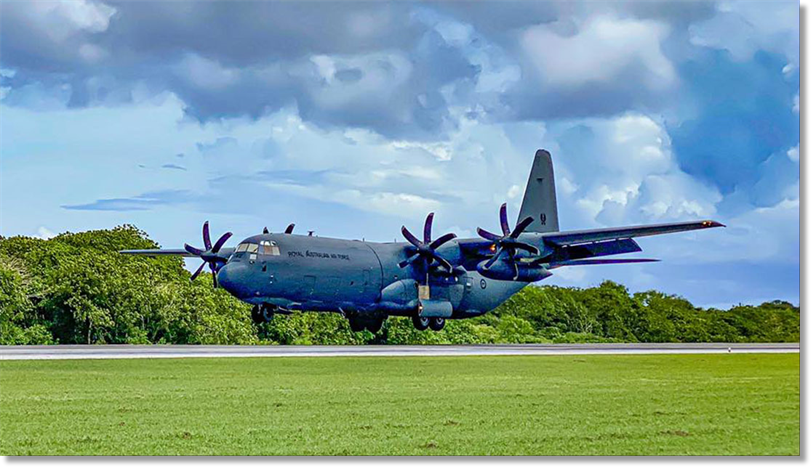
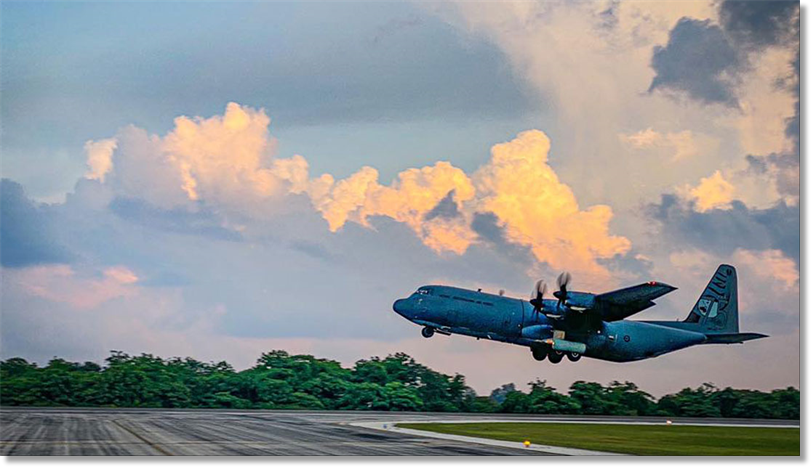
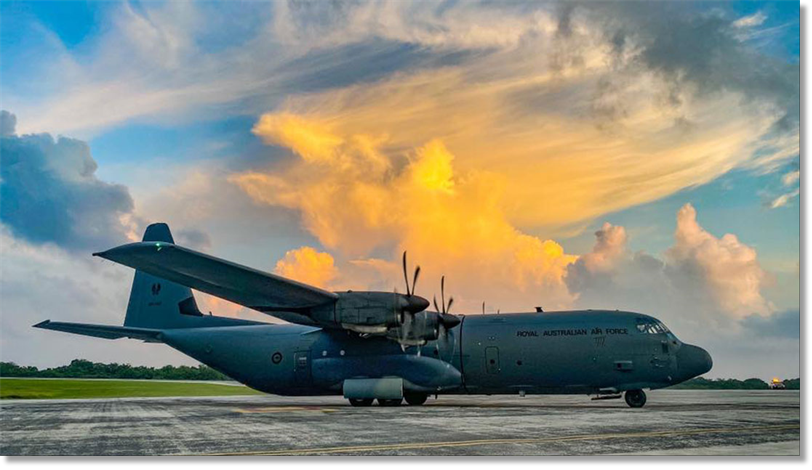
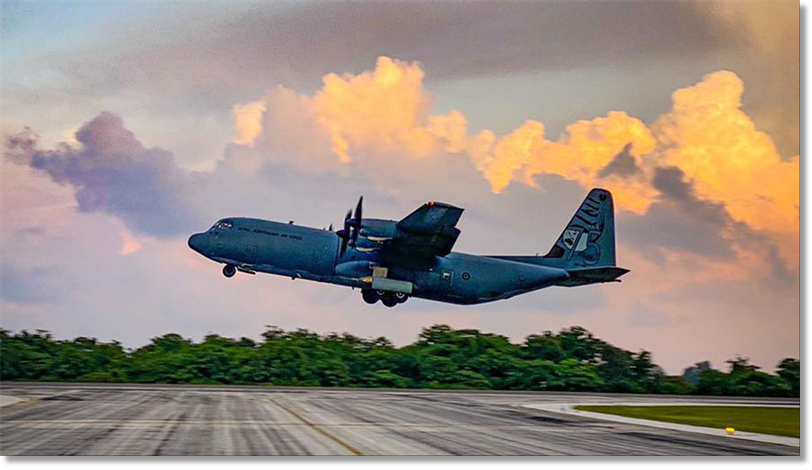
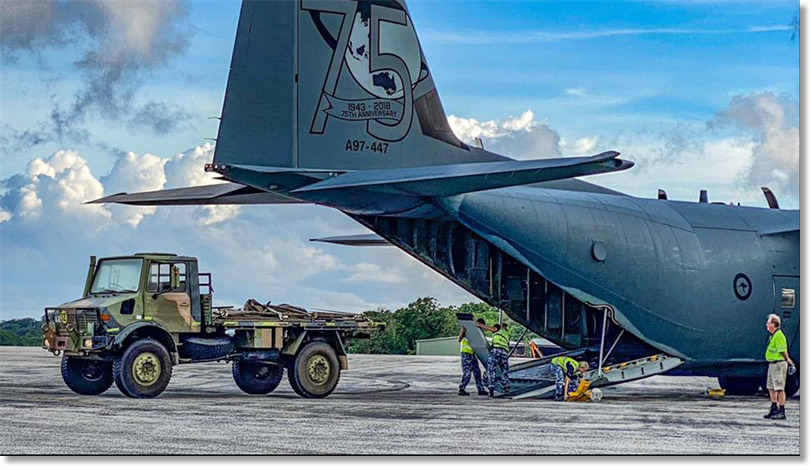
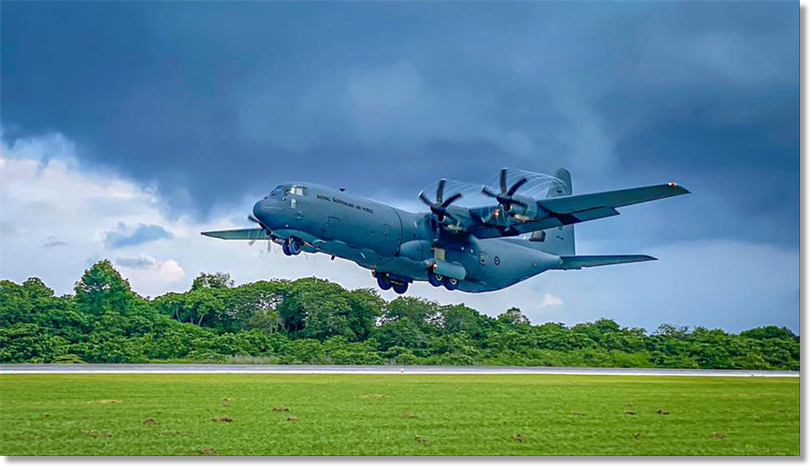
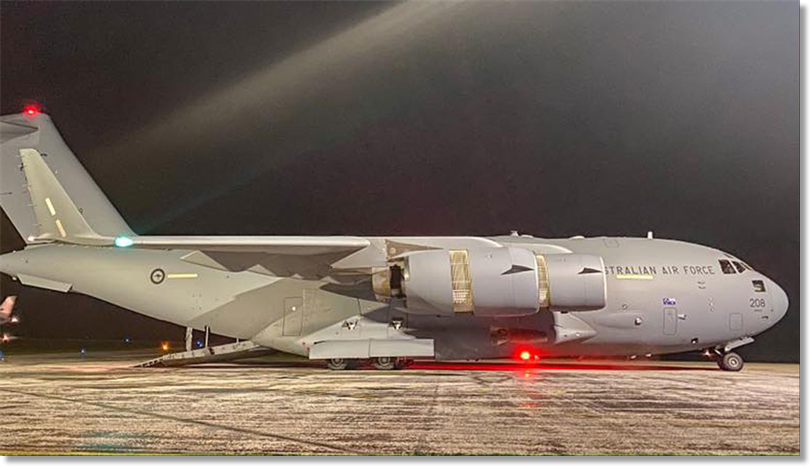
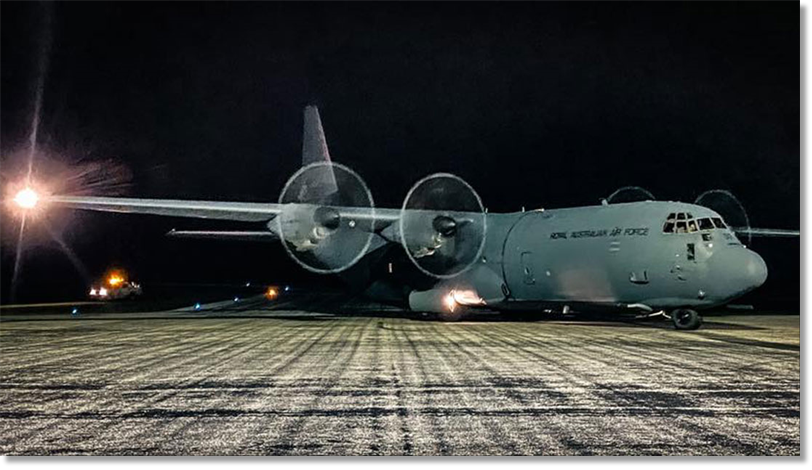
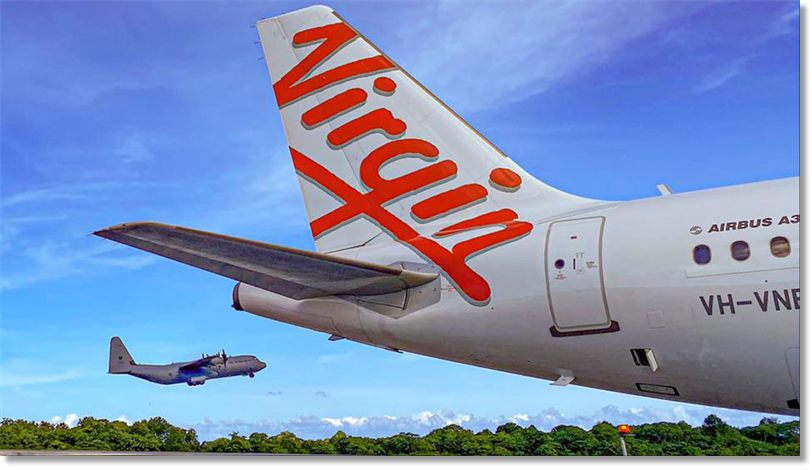
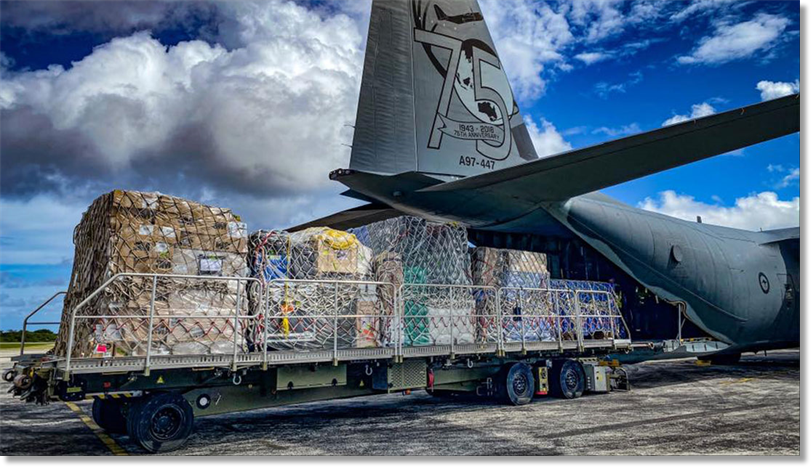
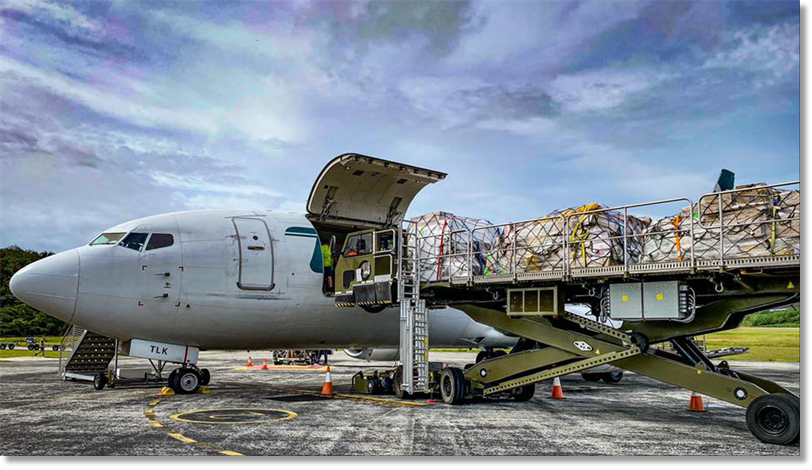
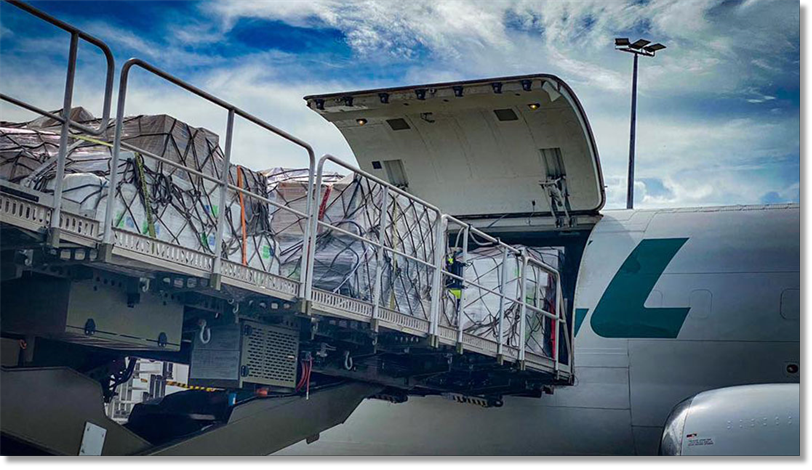
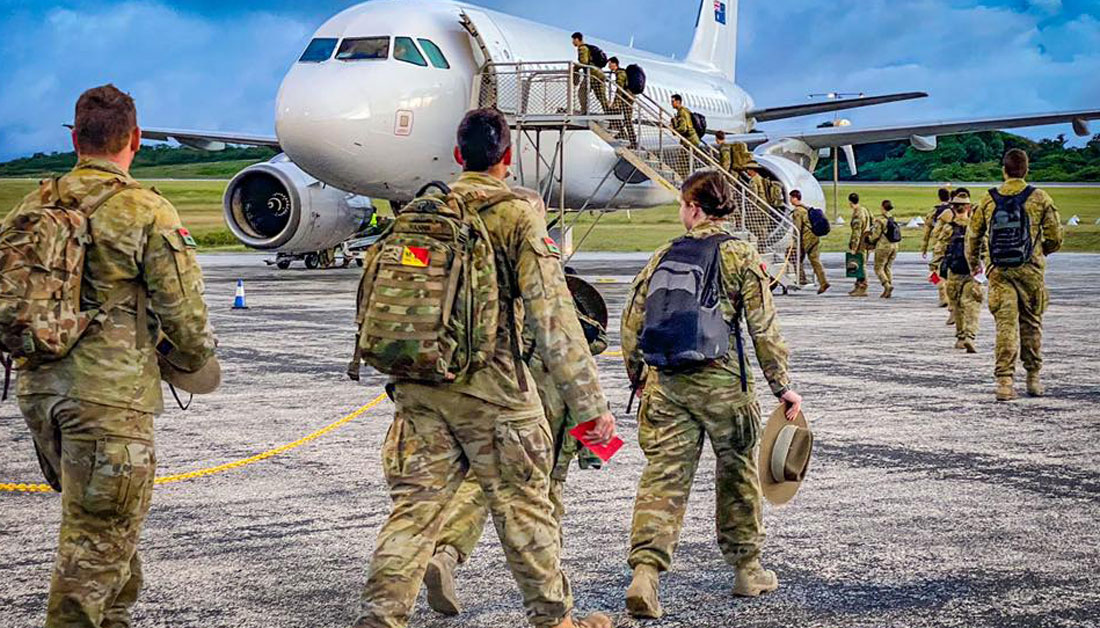
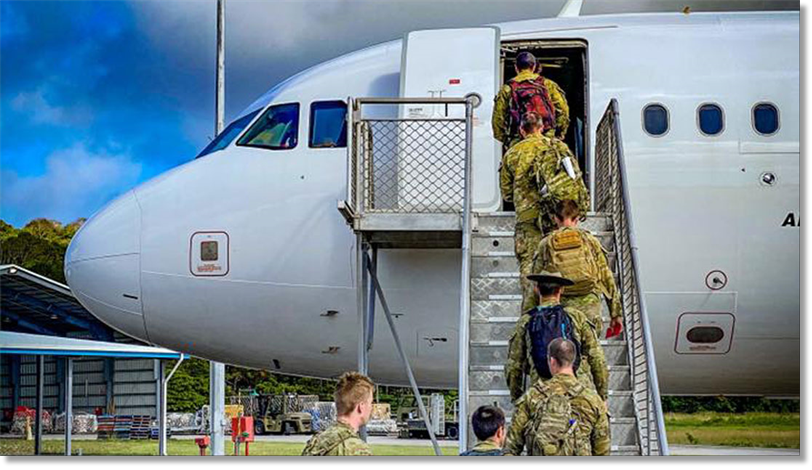
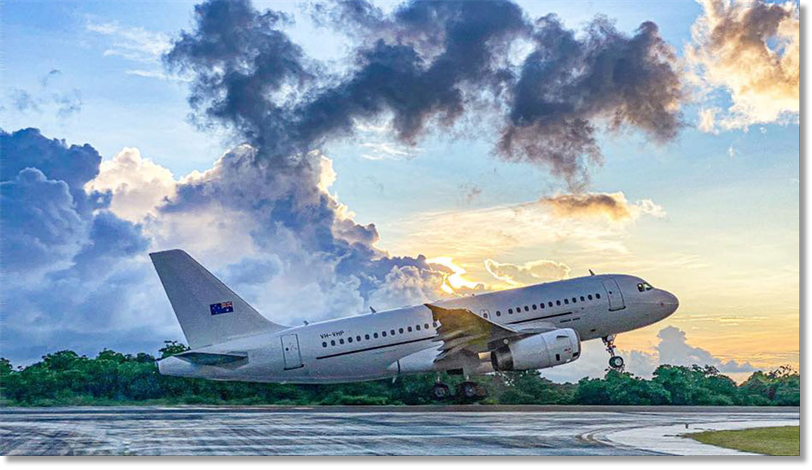
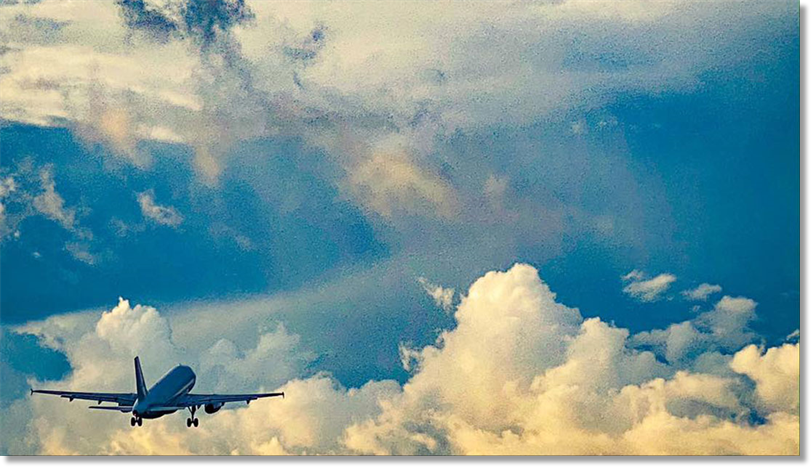
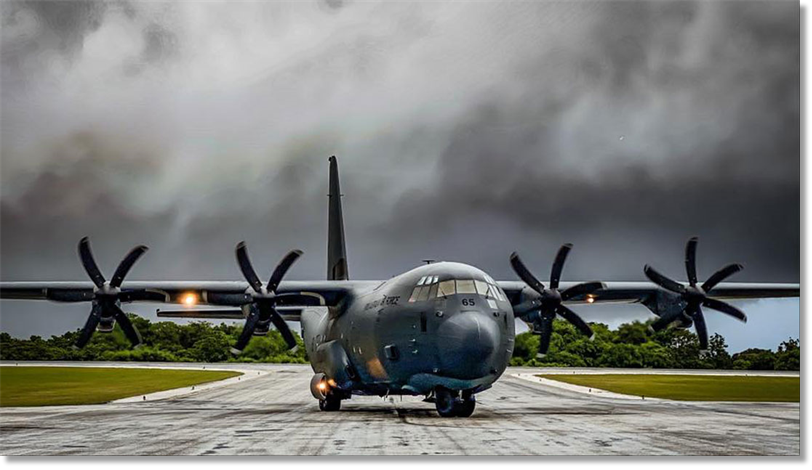
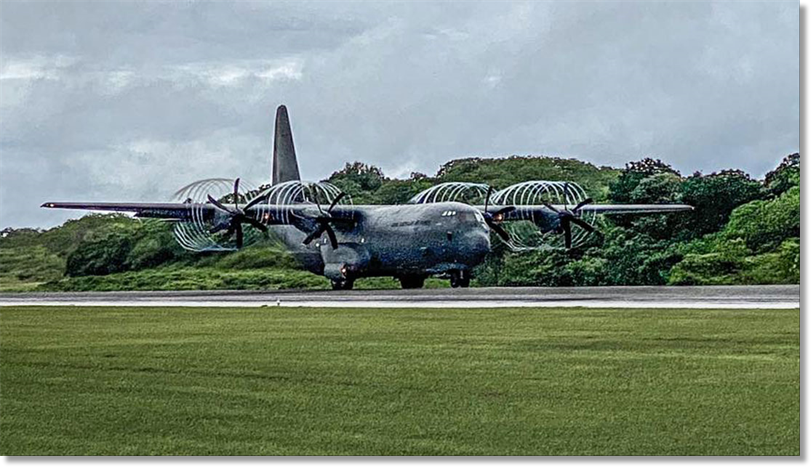
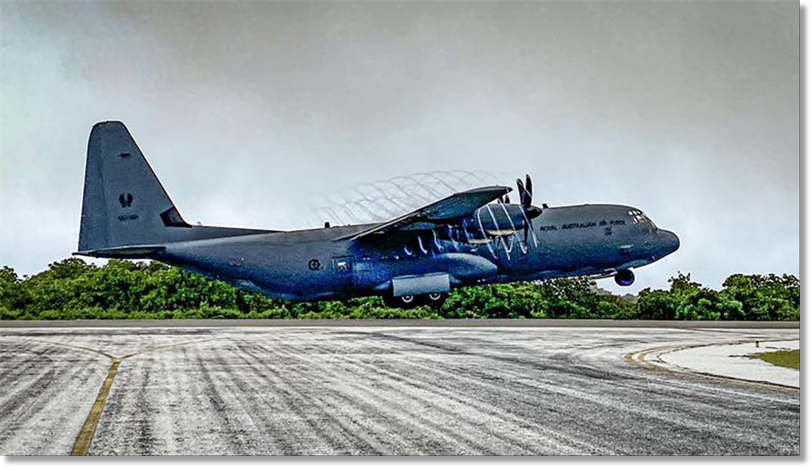
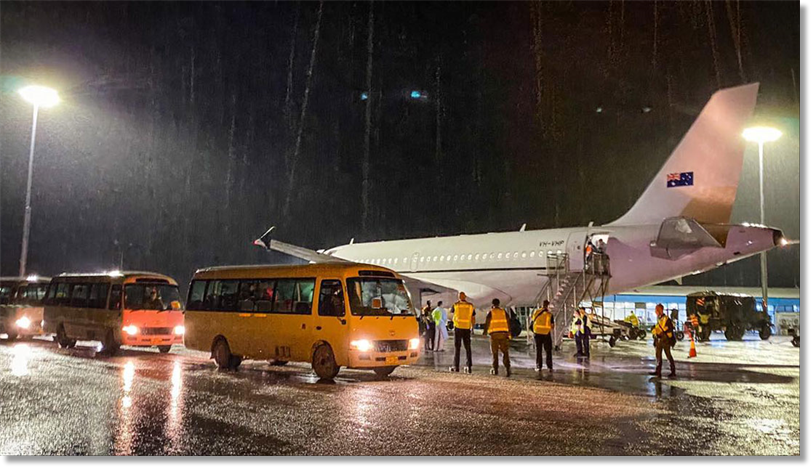

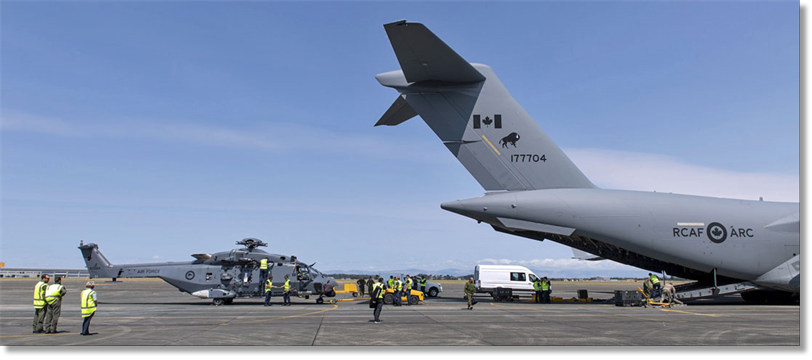
Royal New Zealand Air Force (RNZAF) helicopters and crew have flown more than 180 hours in Australia carrying out fire mapping, transporting water and fuel to isolated communities, and searching for people thought to be in the path of bushfires. Three NH90 helicopters and crews have been in Australia as part of the Australian Defence Force-led response to the bushfires.
The three NH90 helicopters and crews are being transported back to New Zealand from Australia this week by a Canadian CC-177 Globemaster aircraft.
The offer by the Royal Canadian Air Force to bring the NH90 helicopters and crews home demonstrated the spirit of cooperation between international militaries who worked closely together and had gone to Australia’s aid, Rear Admiral Gilmour said.
New Zealand Defence Force

Subject: Life after the Air Force
Hi Tony,
Just before I left the service, I went to York University to do a course on Community and Charity Management. I then managed to get a job as the Chief Officer at the Council for Voluntary Services for Richmondshire in North Yorkshire. The job entailed helping local charities and liaison with the Local Authorties.
Working with the local authorities peeked my interest in becoming a local councillor. The end result was I was elected as an Independent Councillor on Richmondshire District Council and Richmond Town Council where I was privileged to serve as mayor. We then moved down to Suffolk and now I am just enjoying doing very little.
Tom Burrows
Blue Peter's John Noakes Lands C130 on Gan
From: David Powell, Princes Risborough, Bucks
Subject: The Barry Fletcher
Hi Tony,
Well done and thank you for another action packed Newsletter. The photo of the Barry Fletcher and his massive machine had me reaching for the 'I'm sure I've got a photo' shoebox. And here it is:
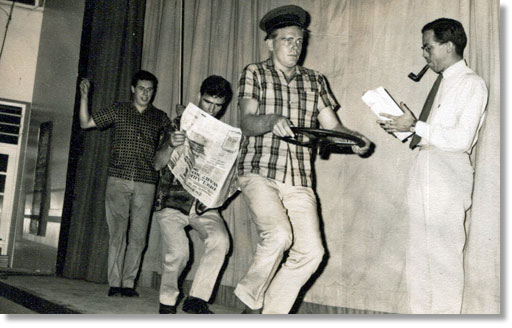
Barry showing early signs of senility, thinking that he is a potential passenger about to board a virtual bus during a panto front of tabs sketch at RAF Changi in 1965 or 66, probably the former.
The skit goes: brm-brm noises as bus 'moves off' now with Barry on board, 'stopping' with suitable passenger swaying etc., and collects two more standing passengers Bus 'stops' suddenly and standing passengers concertina.
Standing Passenger: "Is this Cockfosters?" (A district in London for our overseas readers) To which Barry replies: "Well it's not mine ducky!"
Boom Boom!
Exit omnes.
Take Care Stay Safe, David Powell
ps: I don't know if many of you listen to Classic FM Radio? But there was a superb, and new to me, 'Drummer' joke this morning: Did you hear about the drummer who had 4 daughters? He gave them all the same name; Anna One, Anna Two, Anna Three, Anna Four.
(Groan!)
From: Norman Munslow, Sutton Coldfield, W. Midlands
Subject: Where are they now?
Hi Tony,
I was thinking of the time in Nicosia, when I and other colleagues ran N.F.N Nicosia Forces Network the tannoy radio station during 1960-62.
We did it voluntarily, with each of us presenting different types of music (mine being trad jazz & popular music) the other's names all were in Cyprus 60 to 62:
Bill Doull (Scotland), Geoff Chandler, Horace Bachelor, Dave Danbury, Geoff Vincent (lives in Lyneham village), John Kennedy and Dave Wills.
Don’t know if you can help , it's been a long time.
Thanks
Norman Munslow

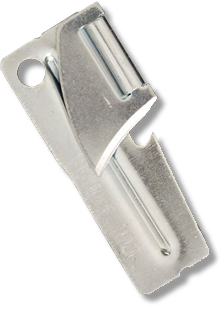
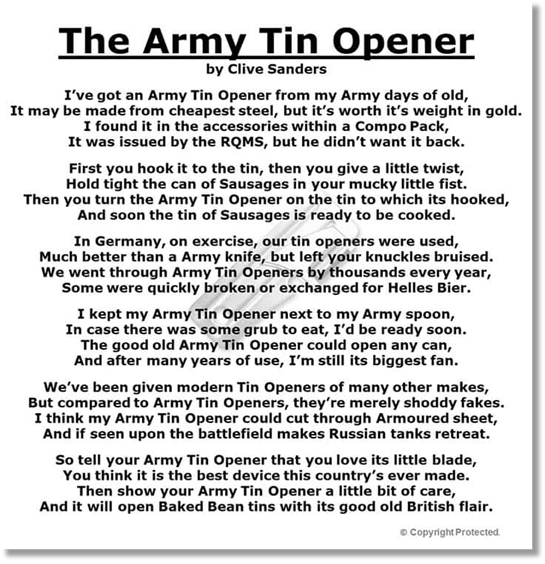
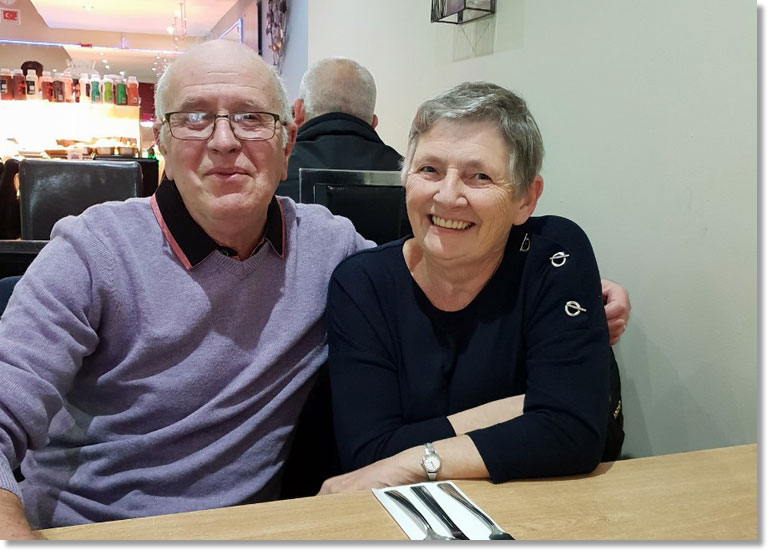
Congrats to John and Kay Tudor of Stevenston, Ayrshire, Scotland - 47th Anniversary!
Michael Cocker, Swindon, Wilts
April/May 1999, Skopje, Macedonia. The Kosovo campaign was well under way, and the beer was still readily available. General Mike Jackson had not, at this point, refused to start World War 3, much to our relief. For a week it was "On the Aircraft", "Off the Aircraft", "On the Helicopter" "Off the Helicopter". A small group of warlike gentlemen were looking forward to the trip, declaring "Great, its going to be just like Rorkes Drift".
Thats me with my back to the camera, authorising more drinking, still had loads of hair then. I can see Graham Mainey, and Shaun Walker an the picture. It was taken by my old mate Stuart Walker, who often got his camera out, usually when my pants were round my ankles.... second picture is our hotel.... Fantastic time, with great people... The true meaning of "Work hard Play hard...
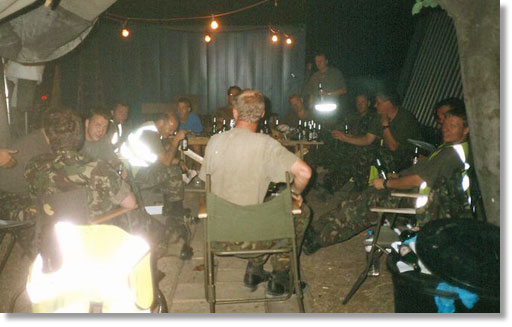
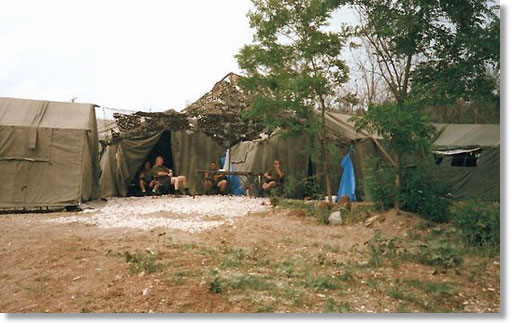
(I know it's not relevant, but I have to share it!)
More Relevant Stuff
If you wish to help support the OBA:
In Canada, via bank e-mail transfer to
Overseas (including the UK), you may send Cheque or Money Order to:
Tony Gale
602-60 Rue Cormier,
Gatineau, Quebec, J9H 6B4
Canada
This newsletter is dedicated
to the memories of:
Shawn Larson (RCAF)
Ronald Leo Bryson (RCAF)
